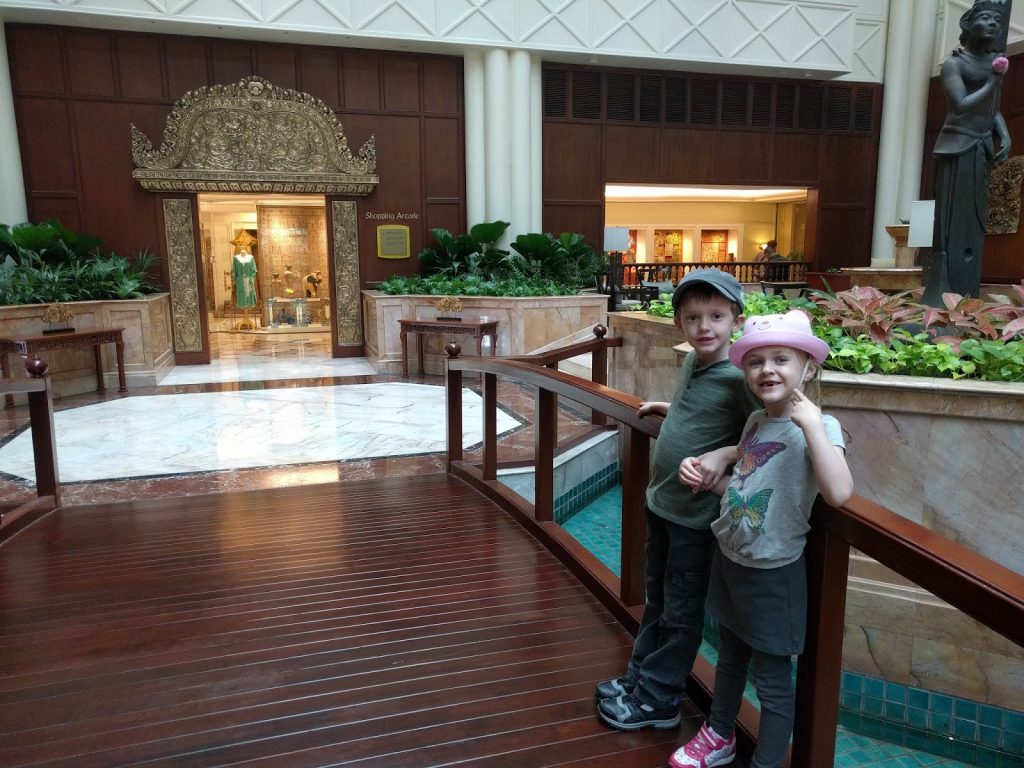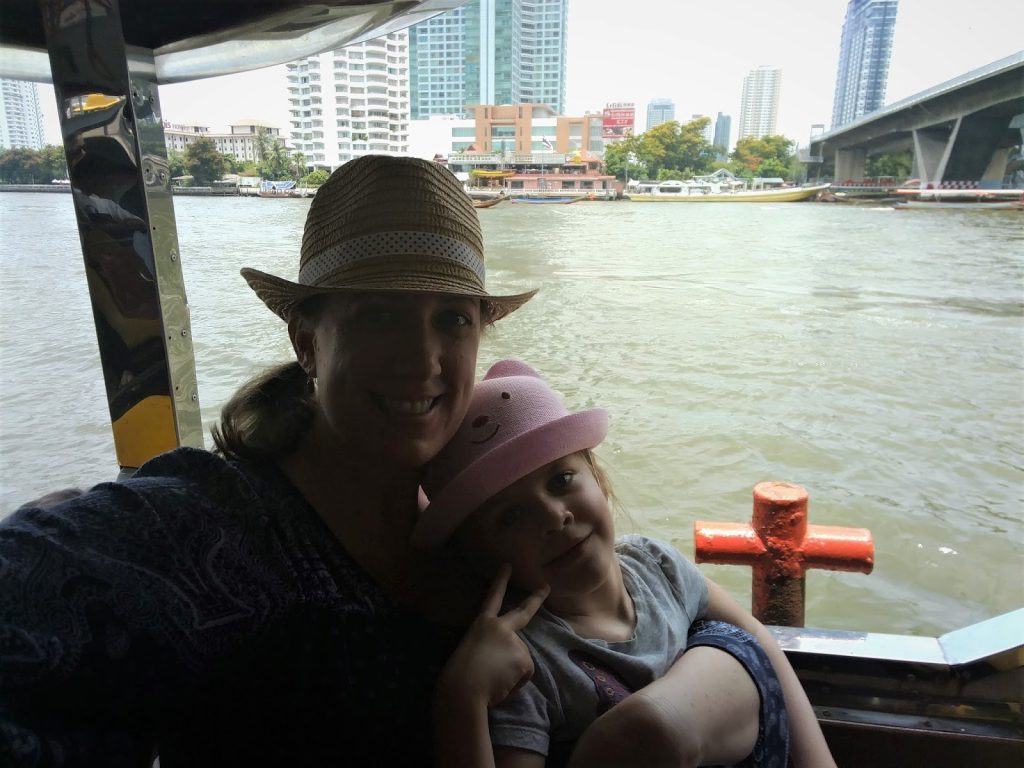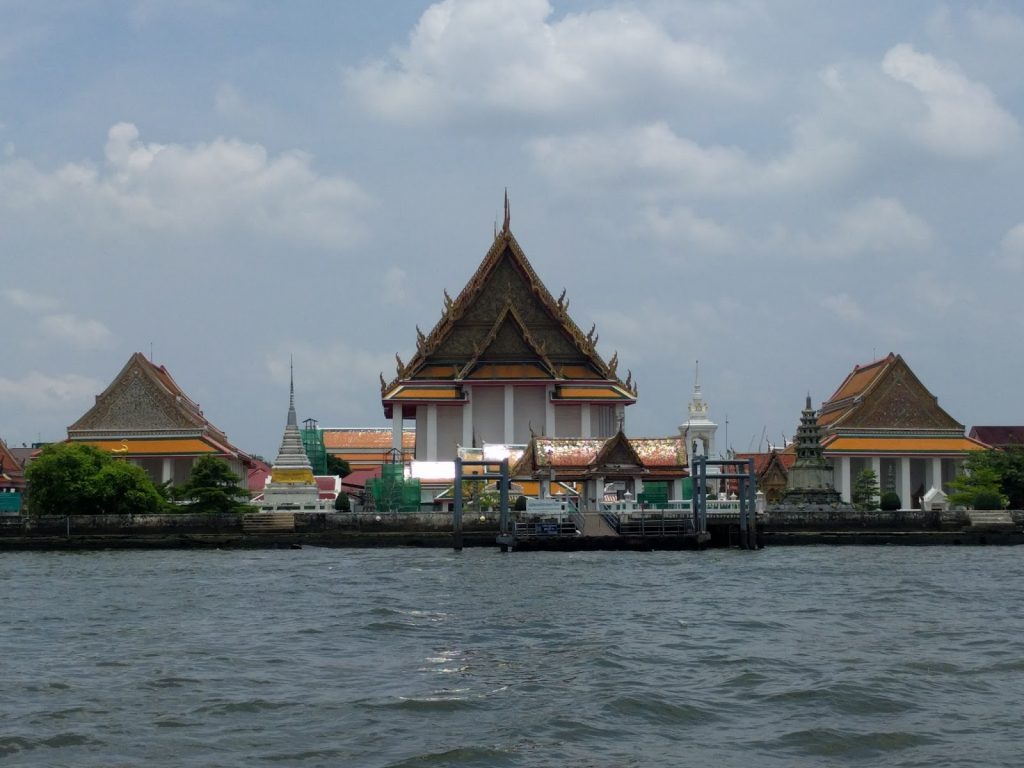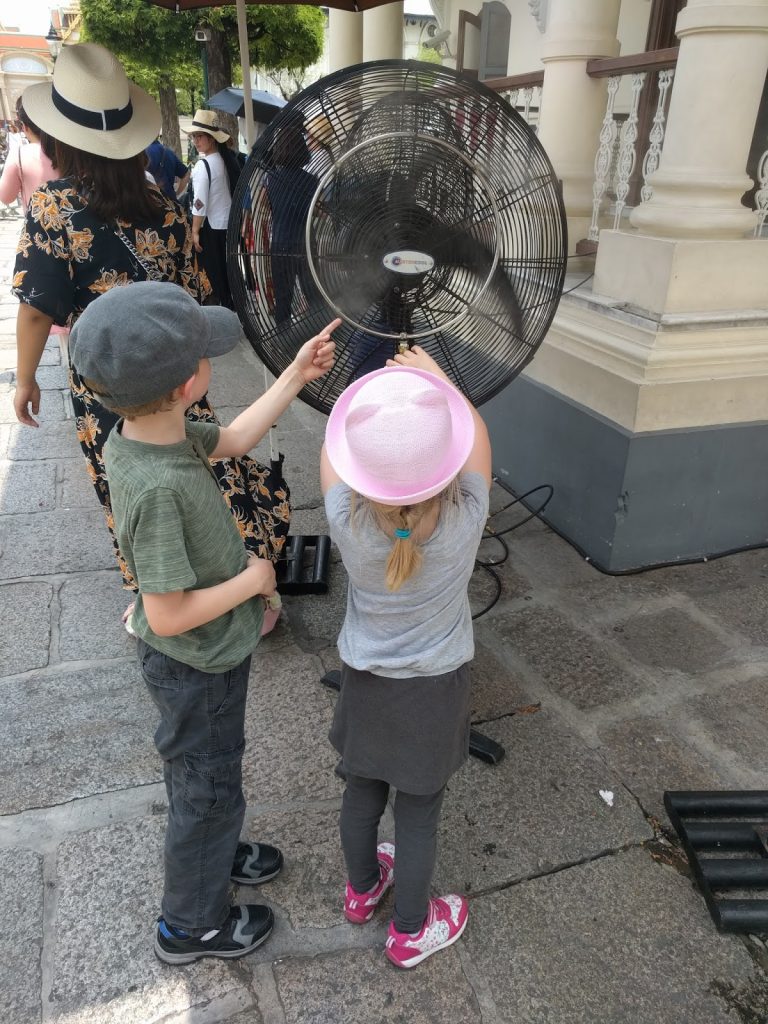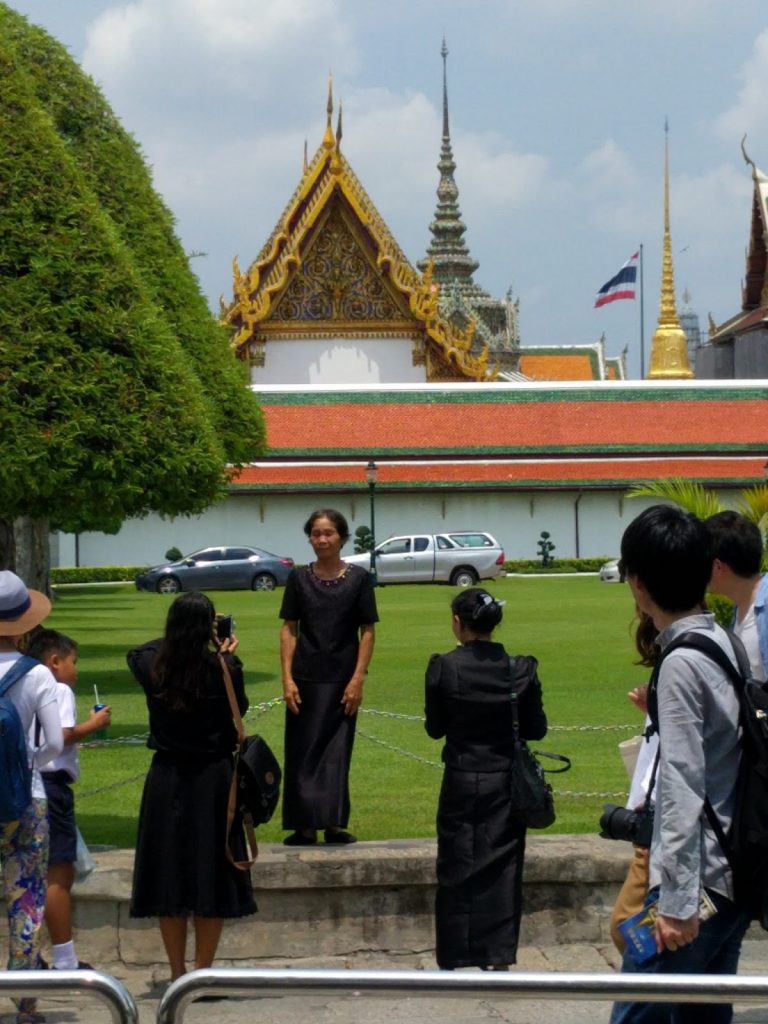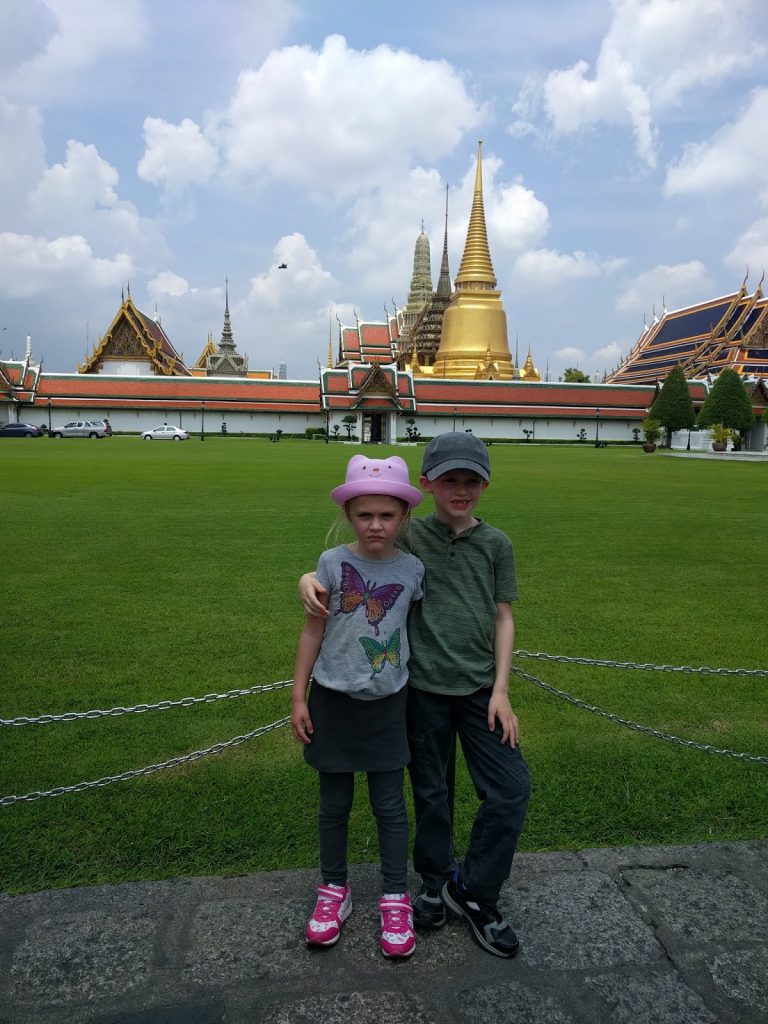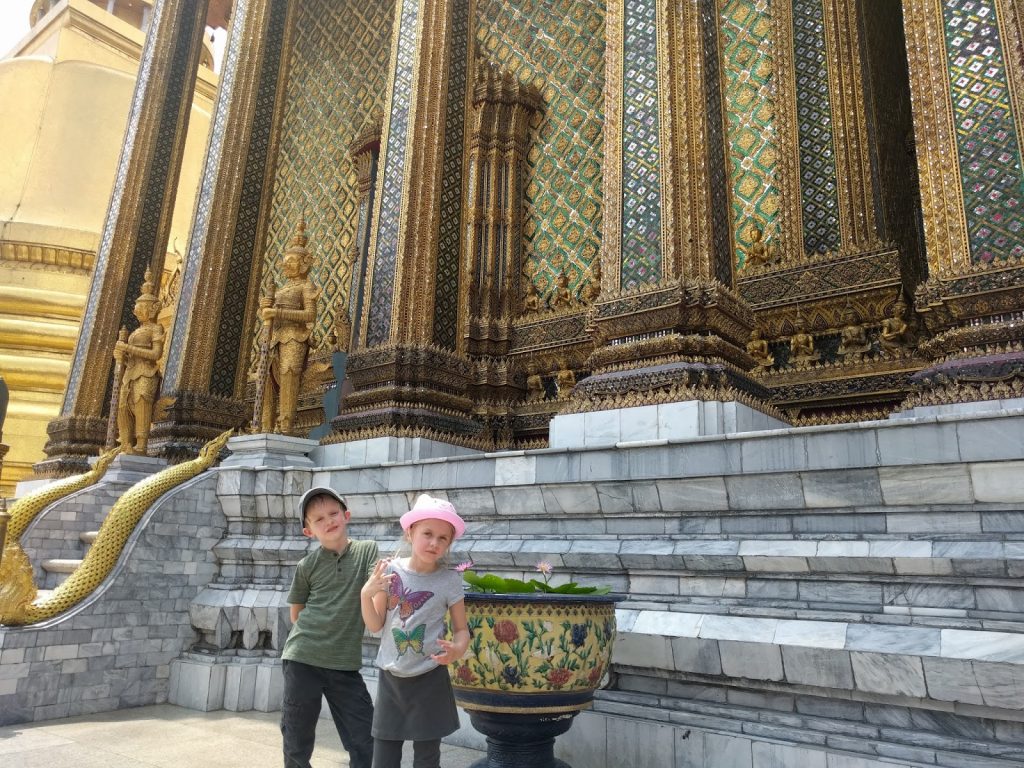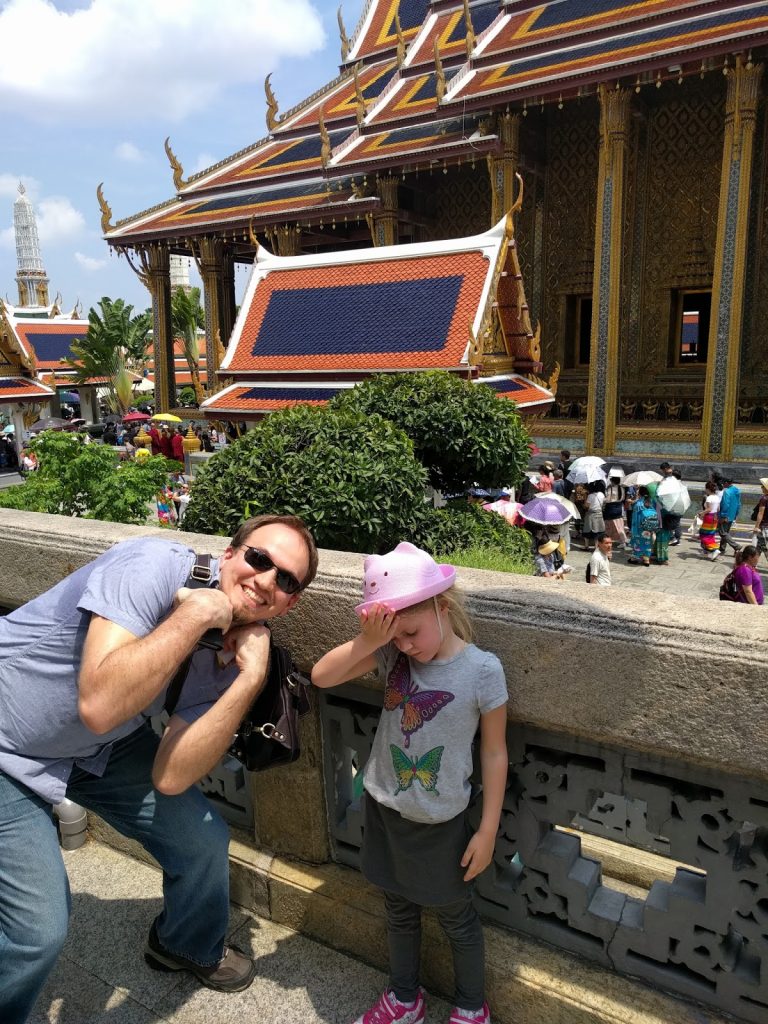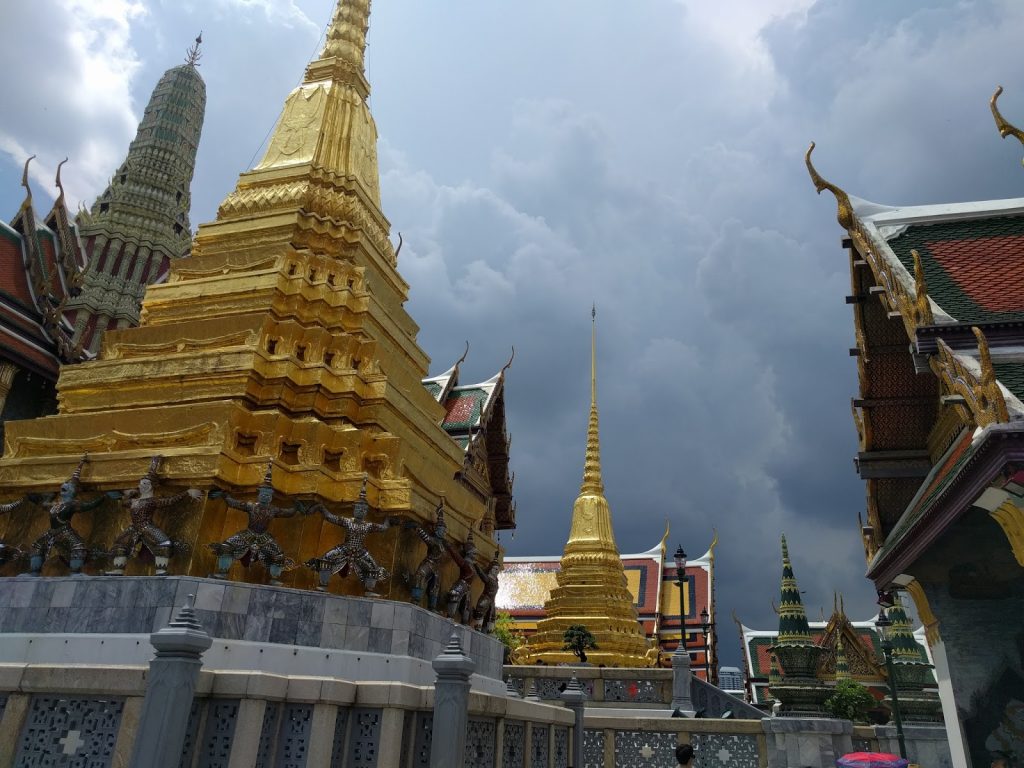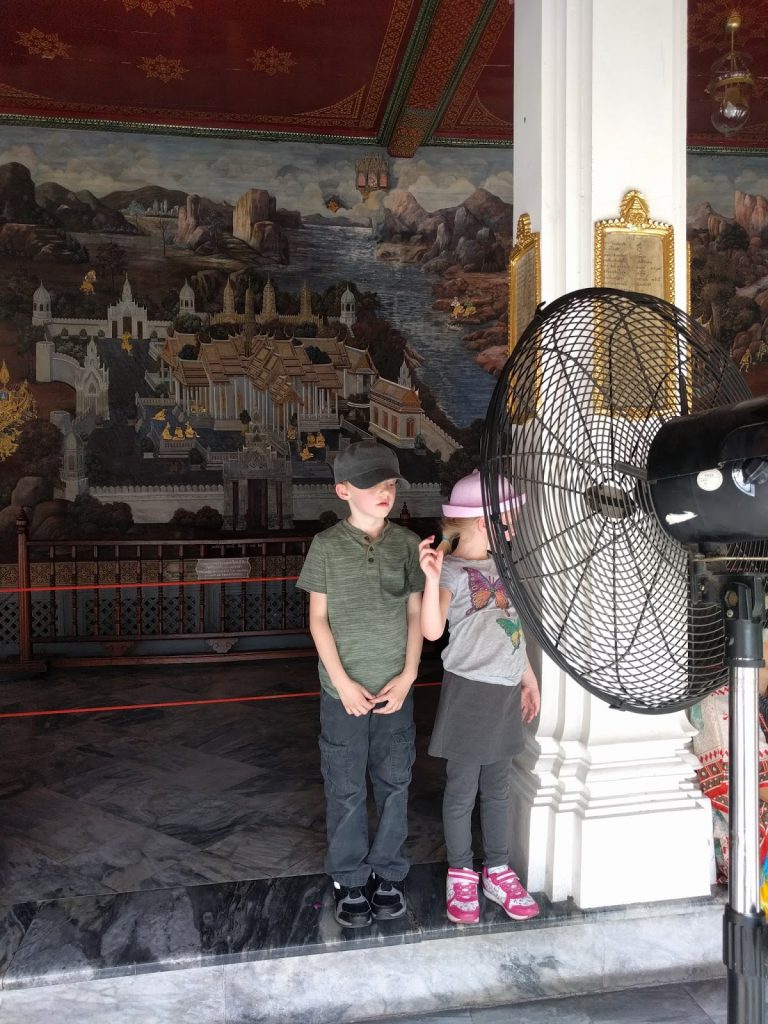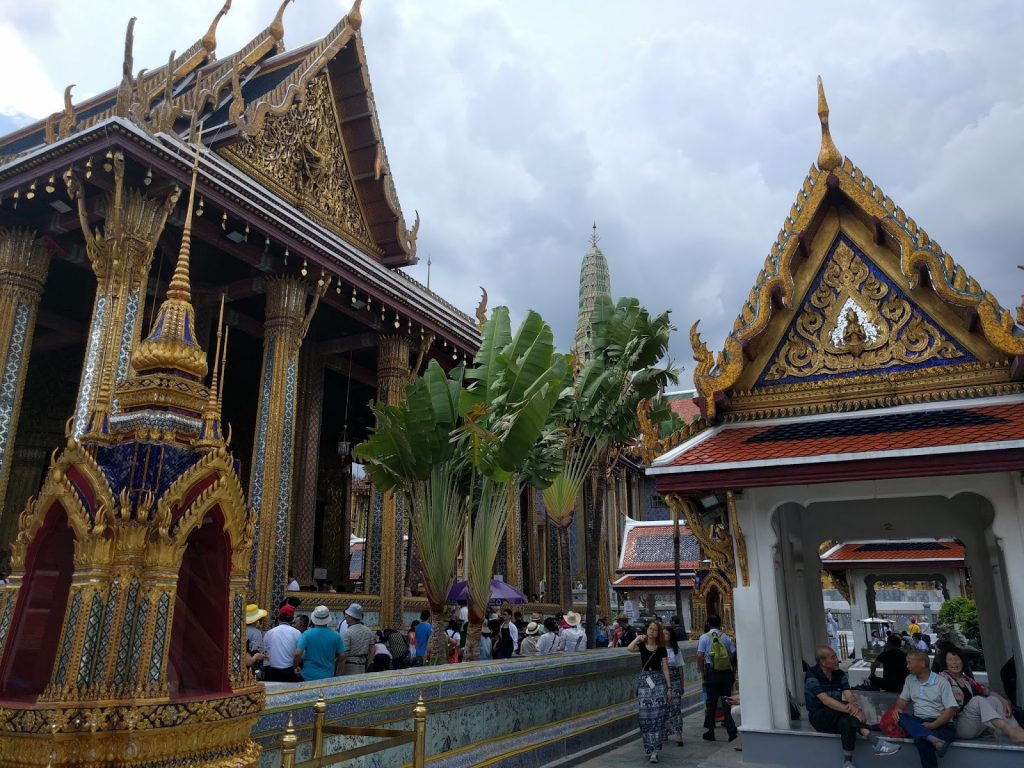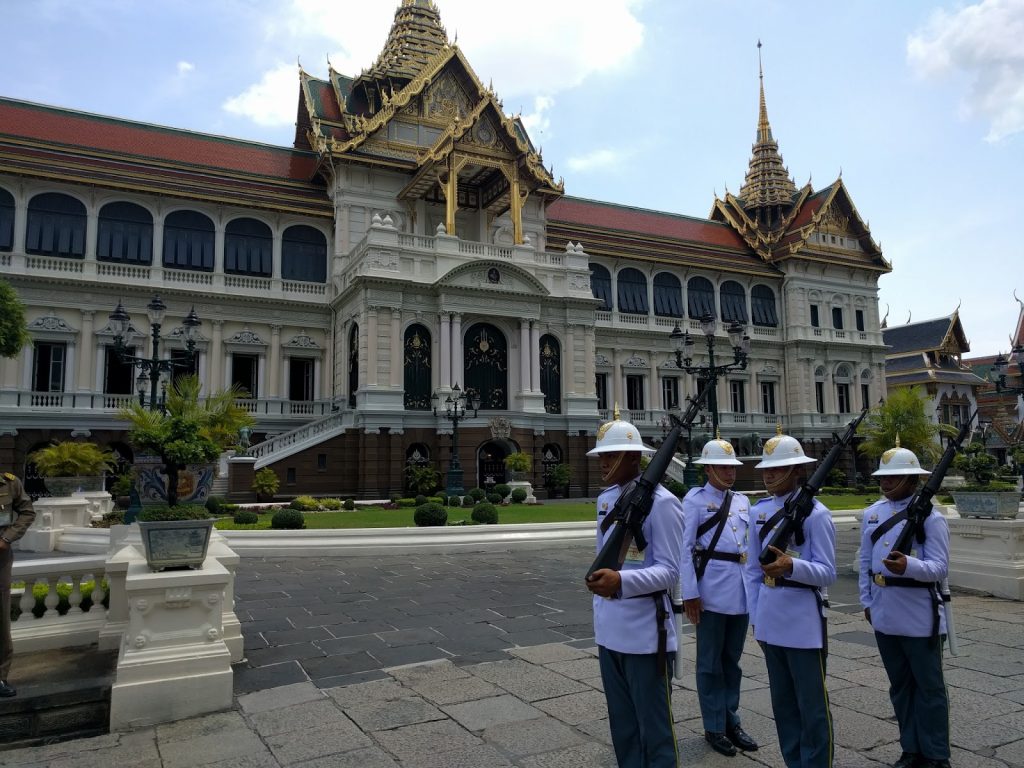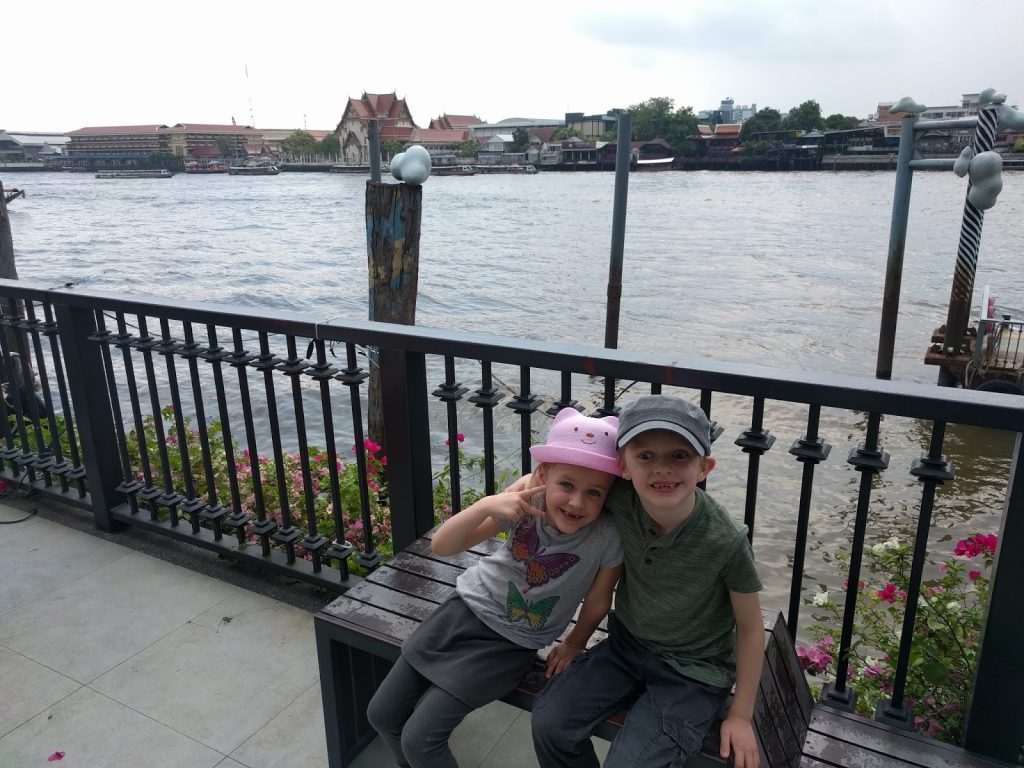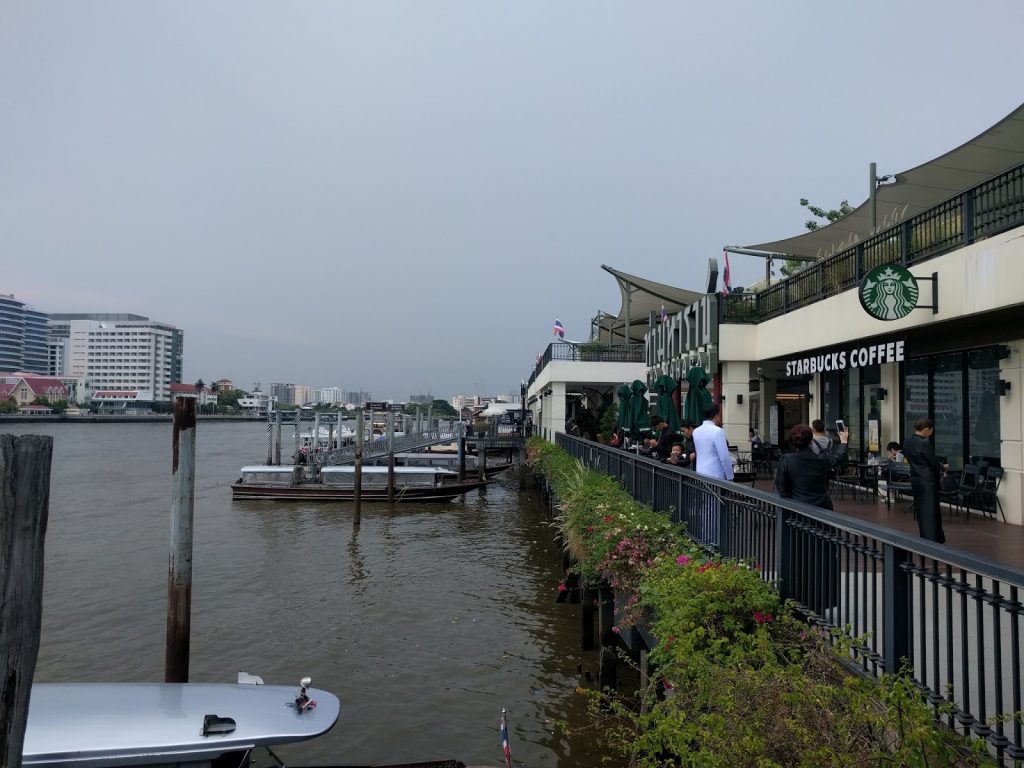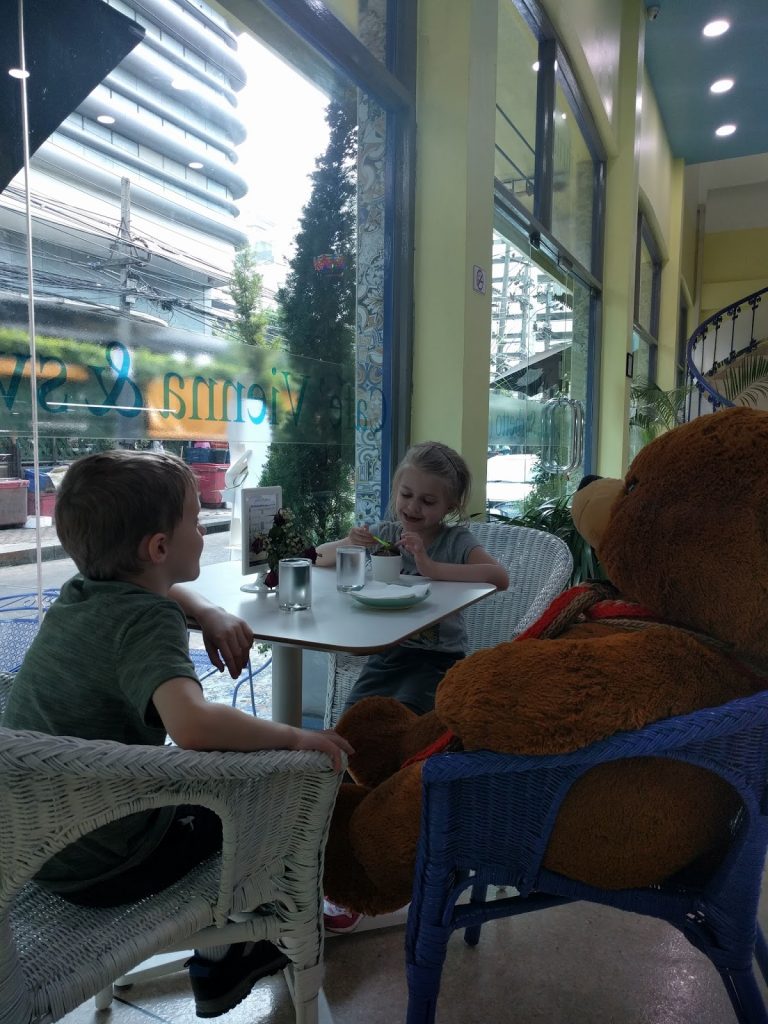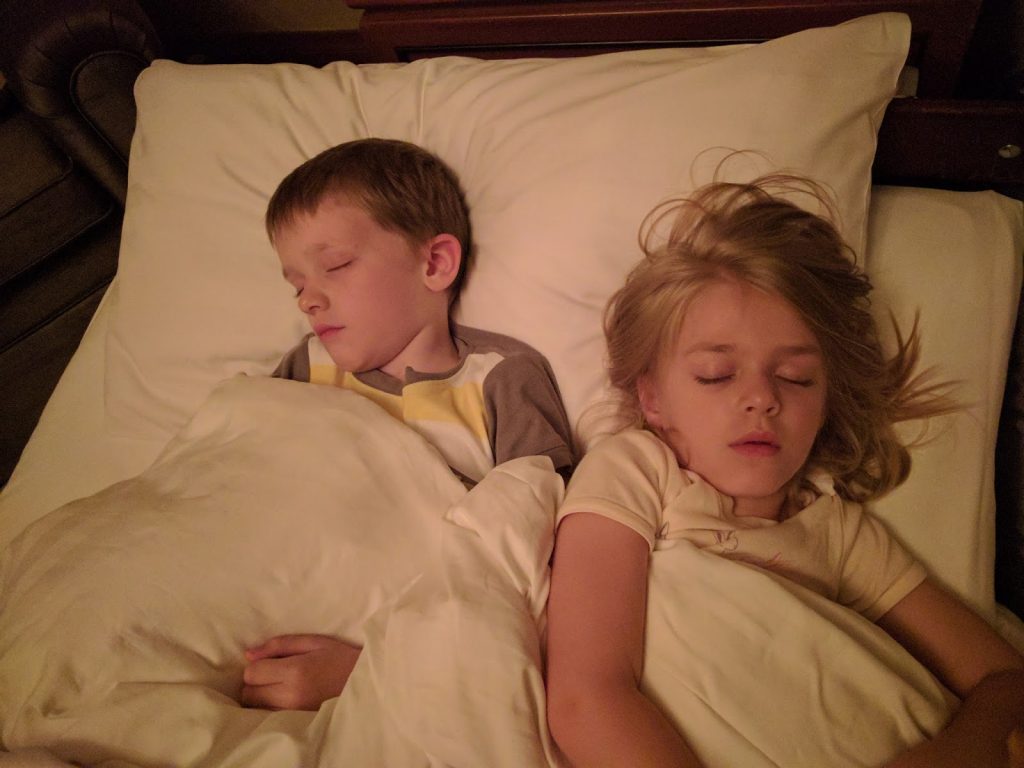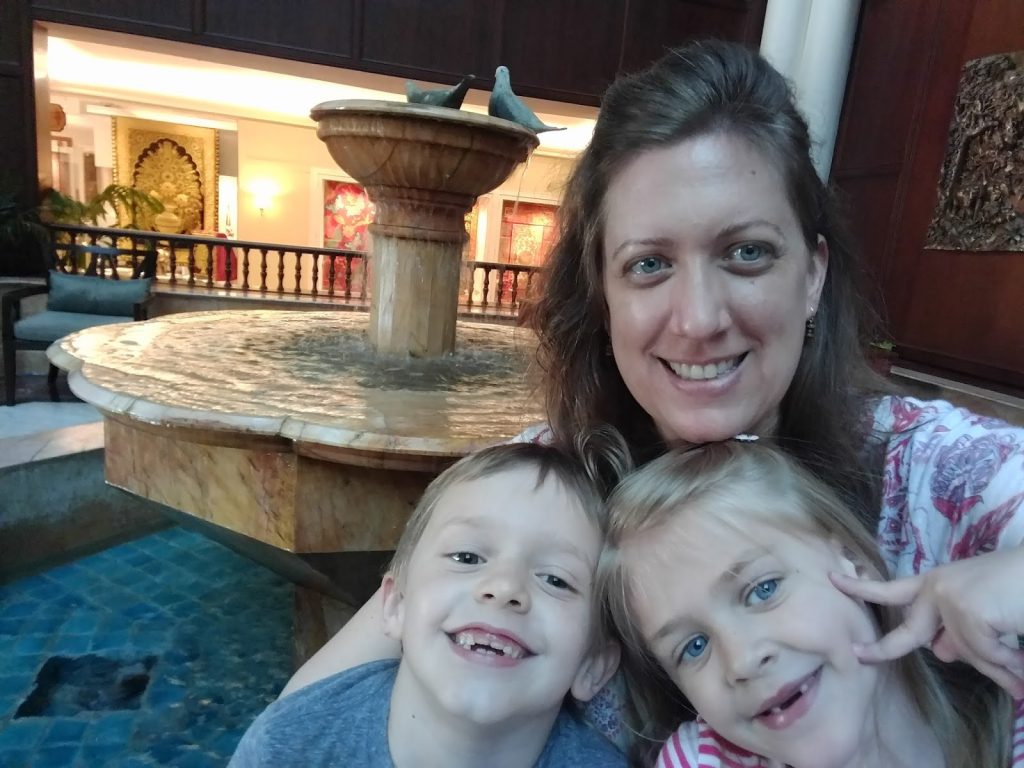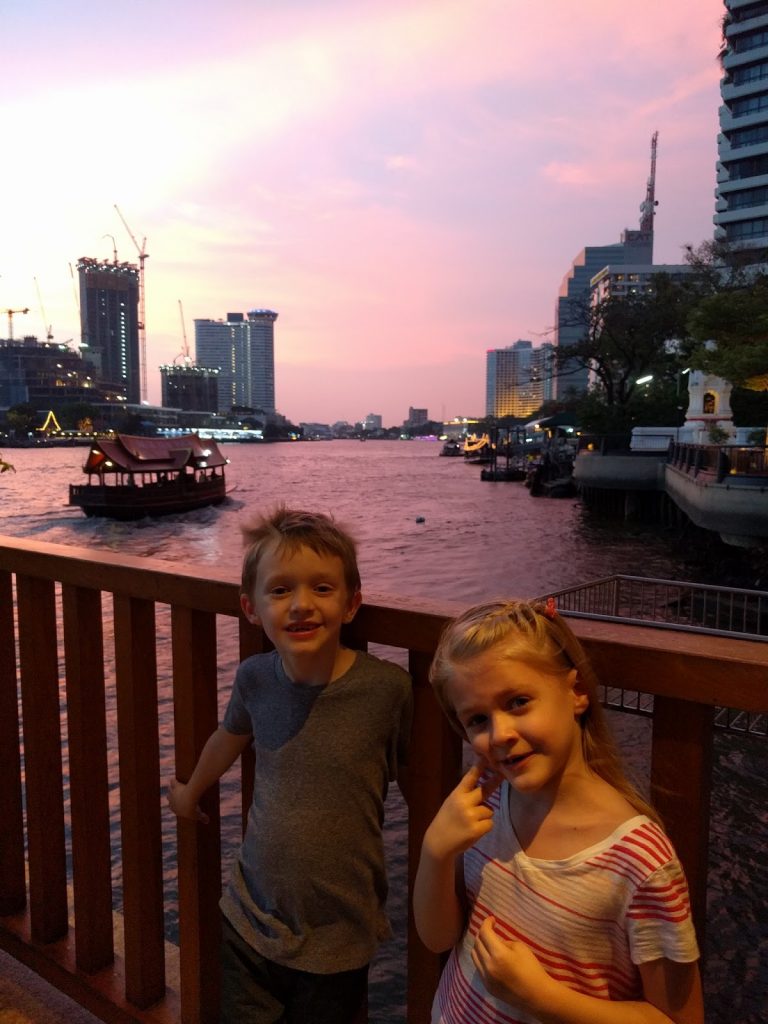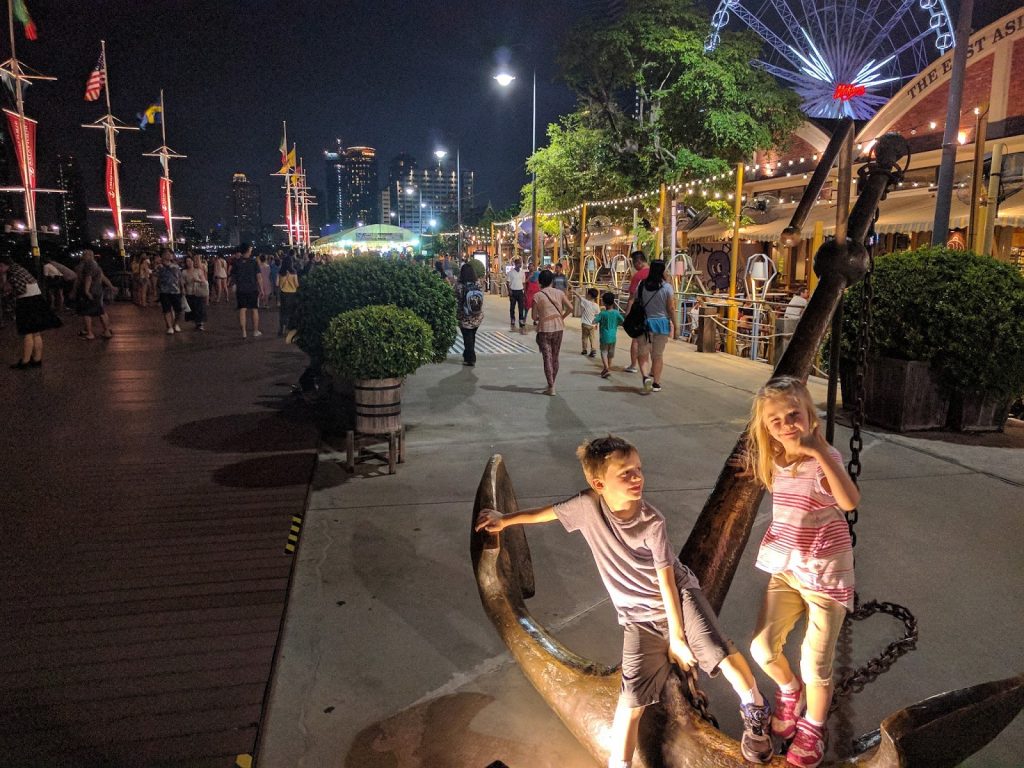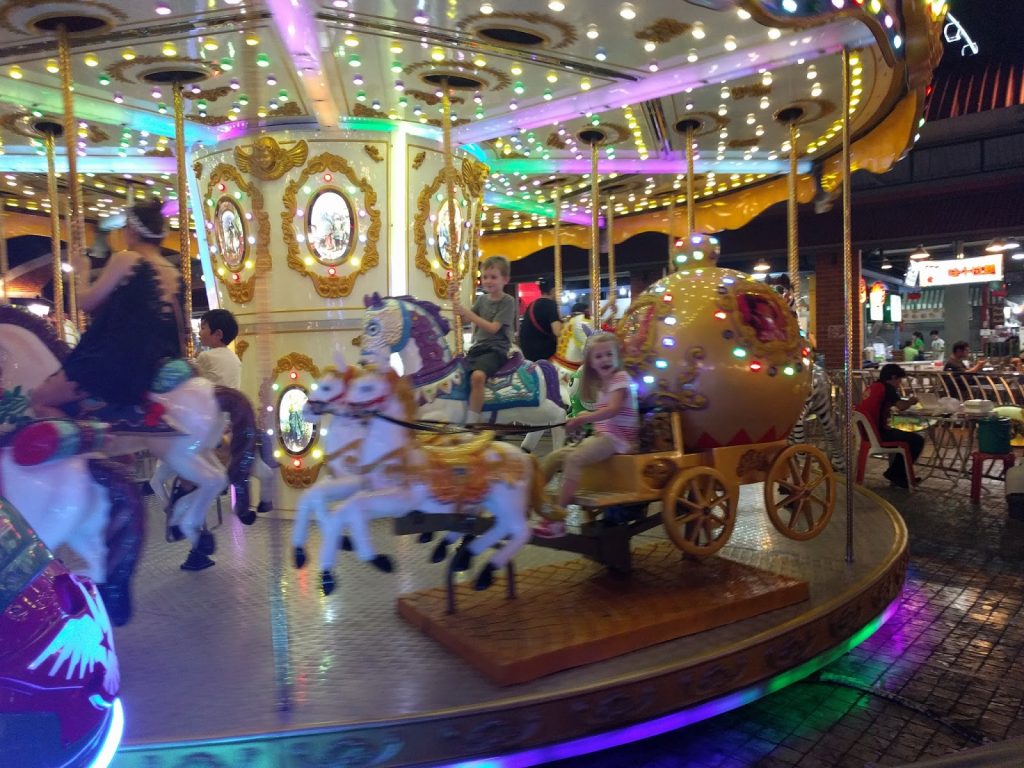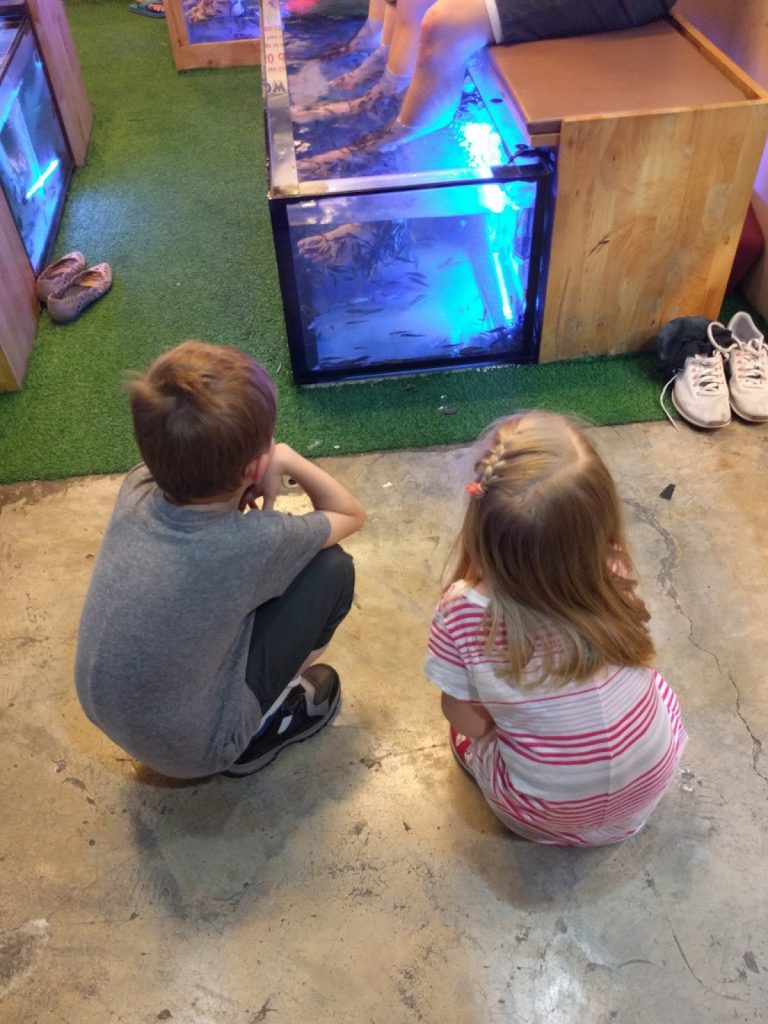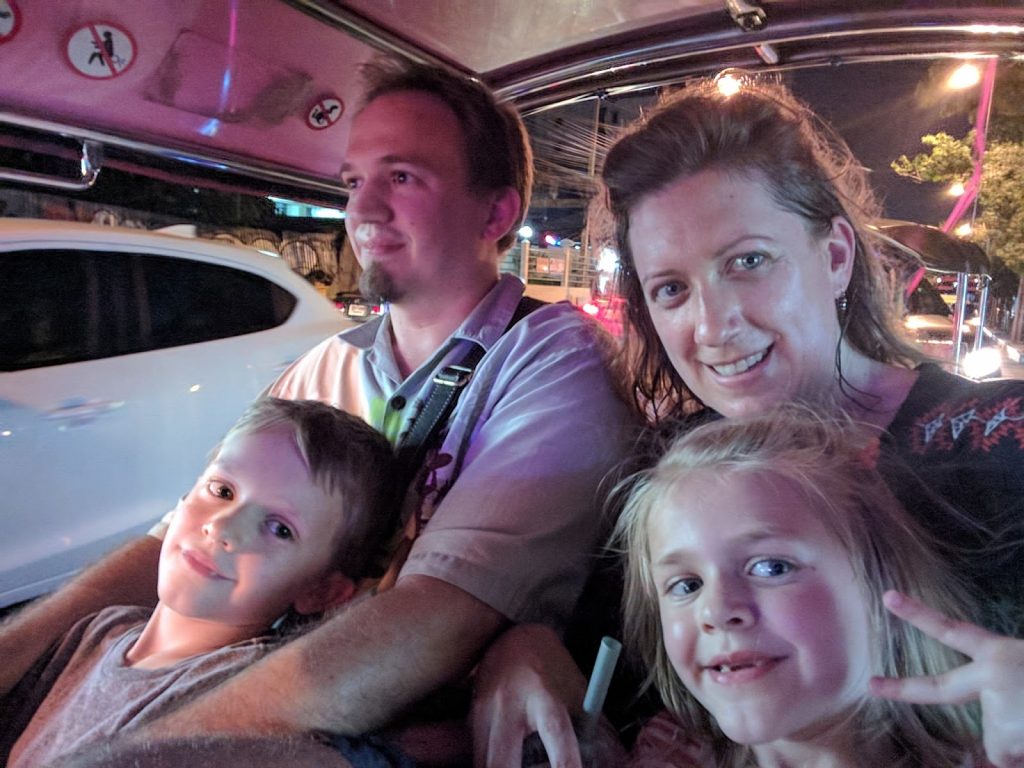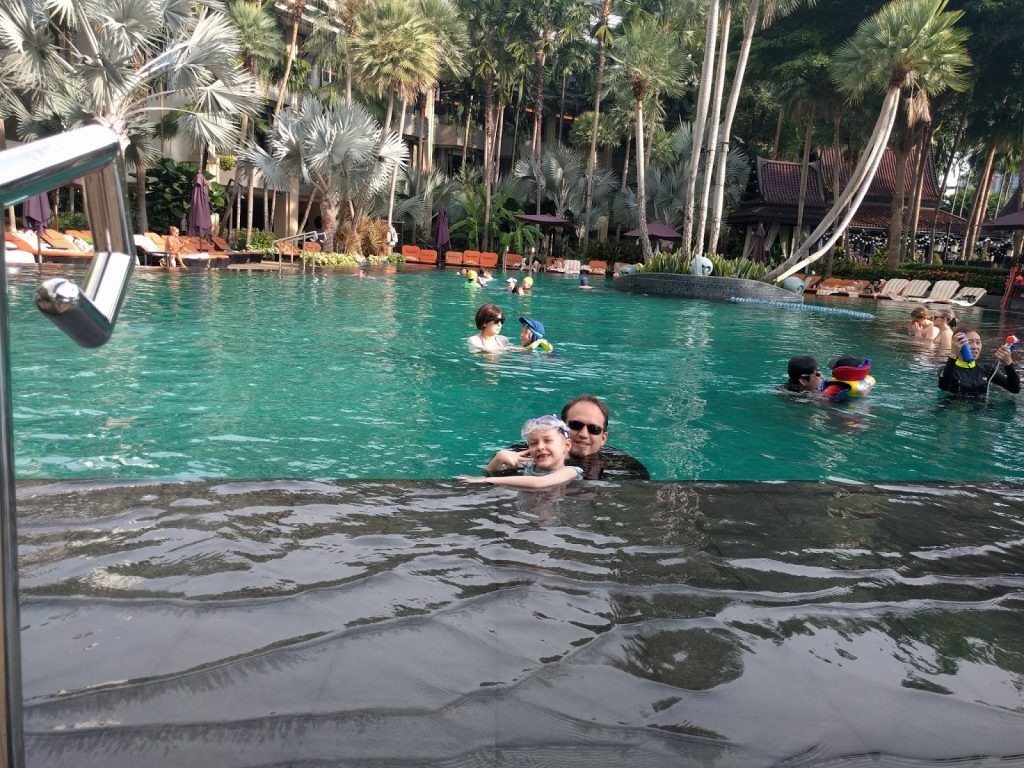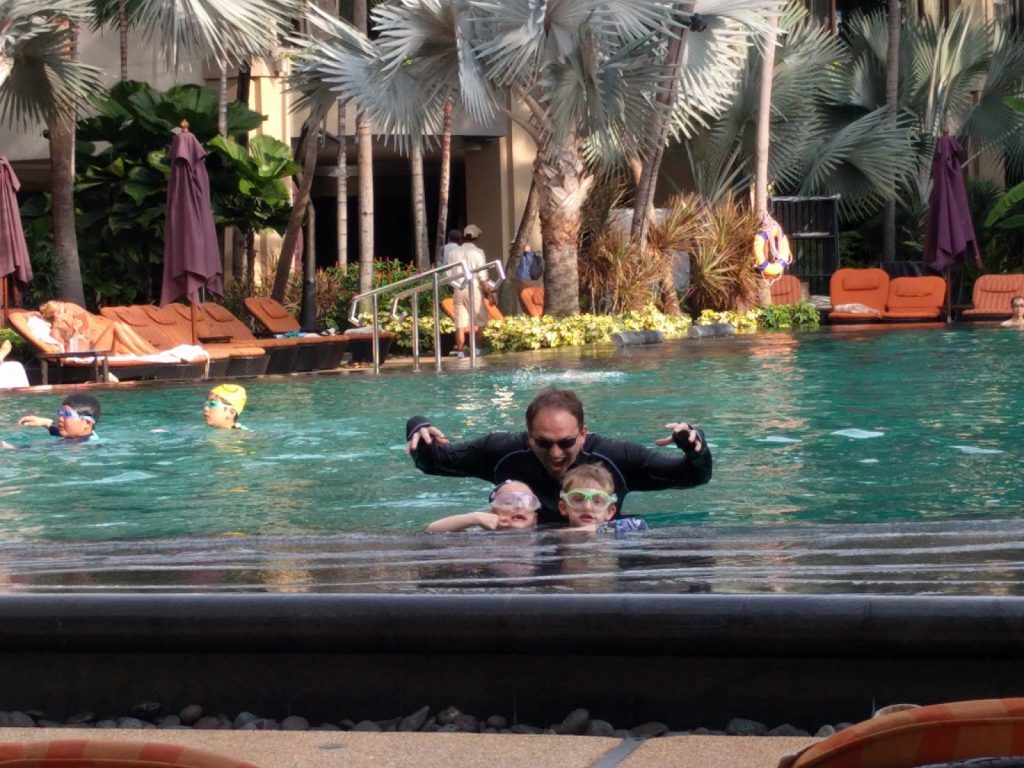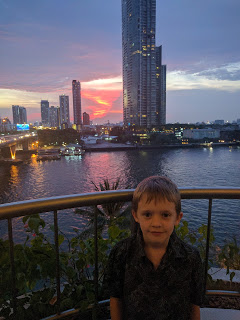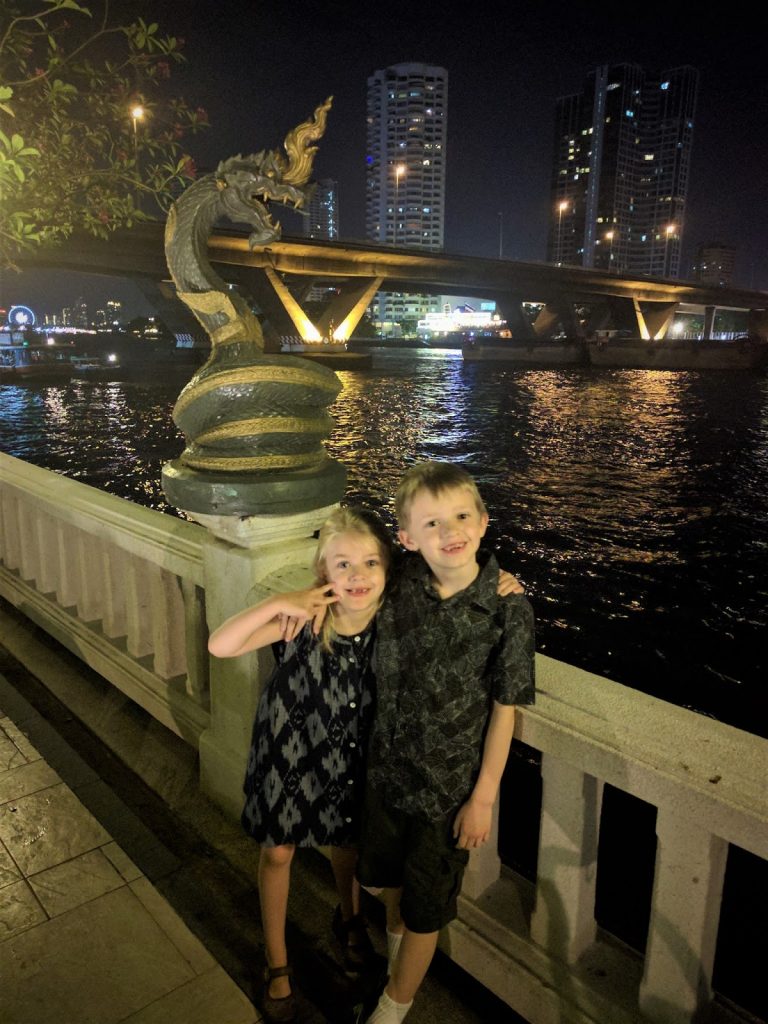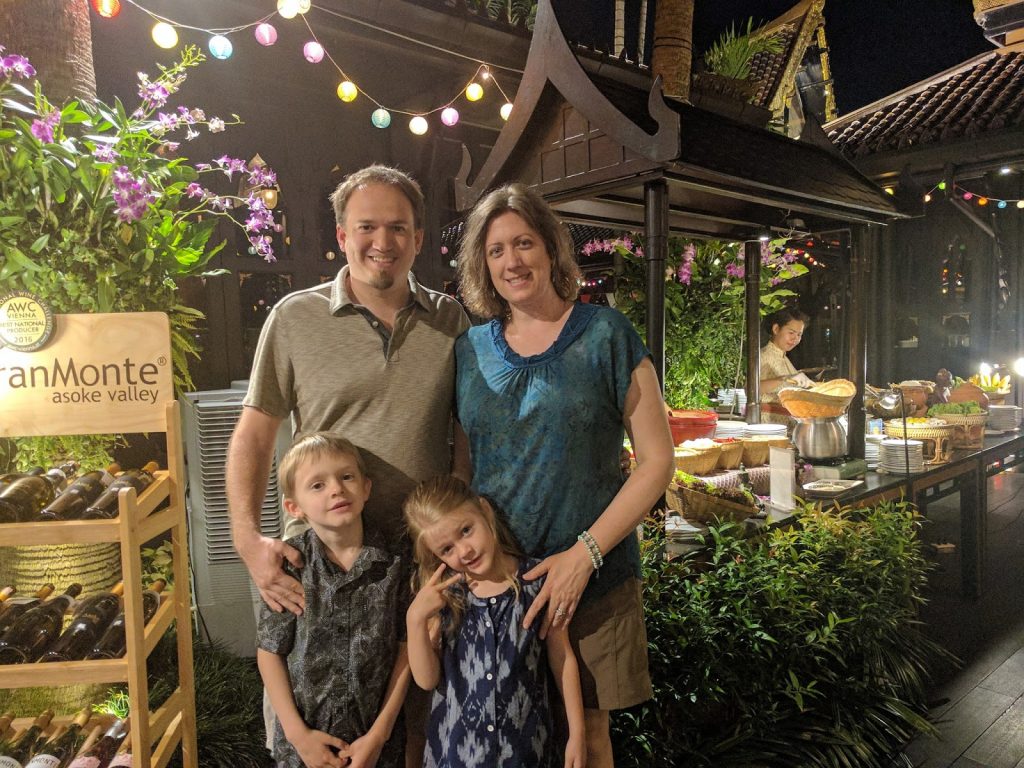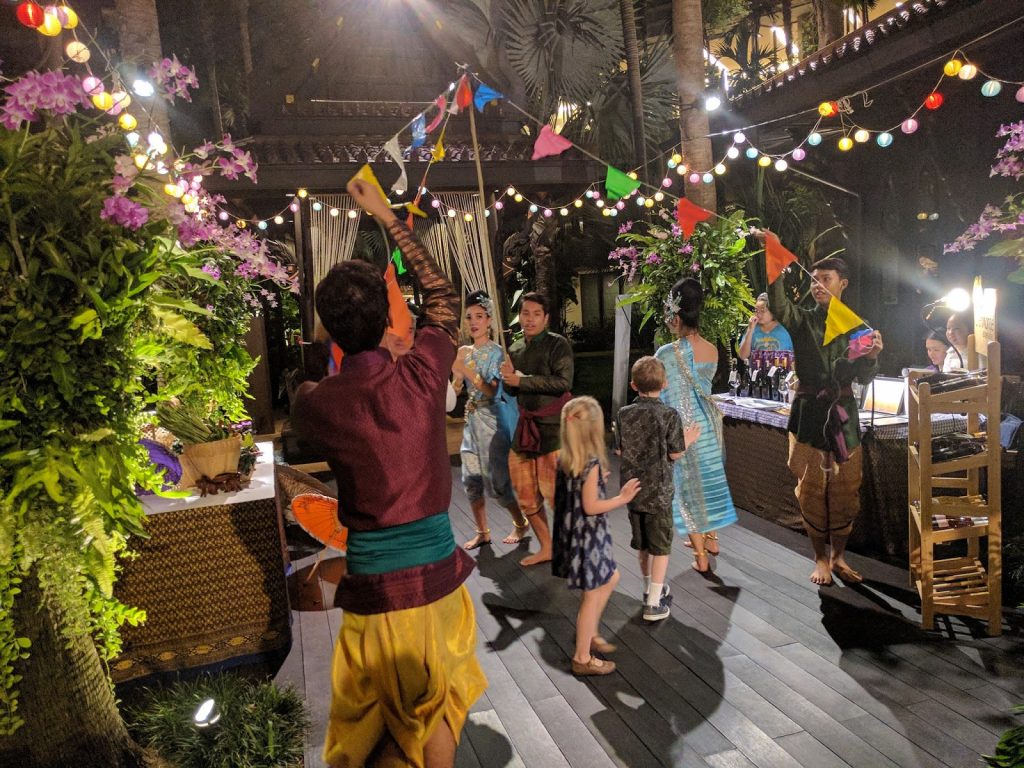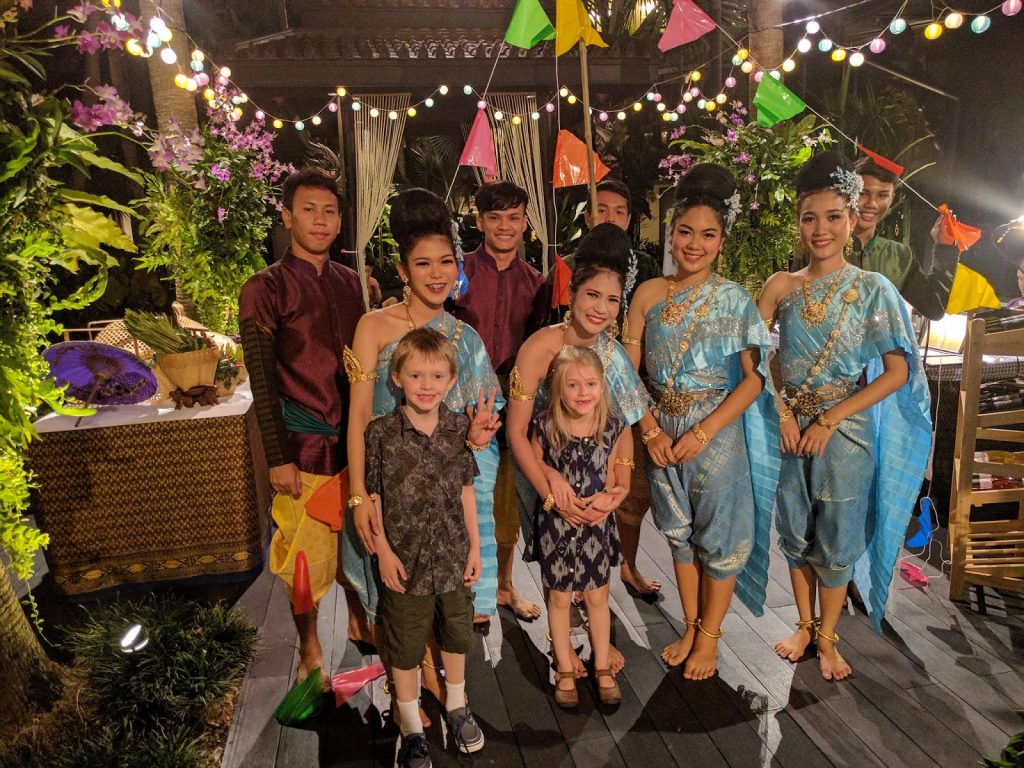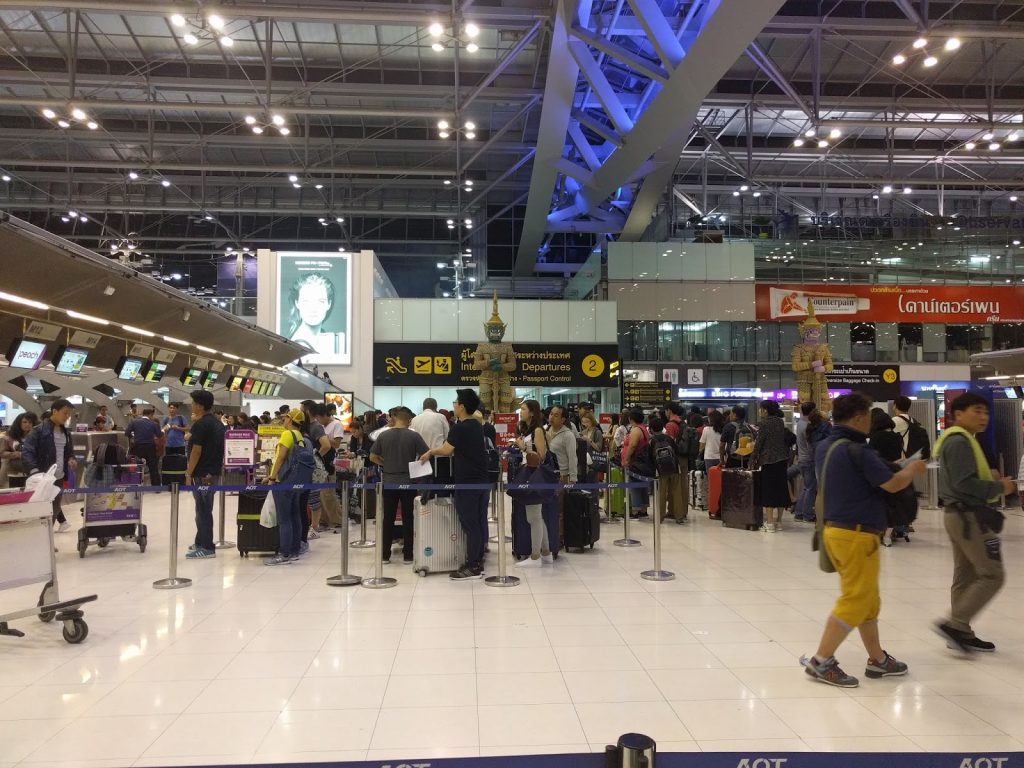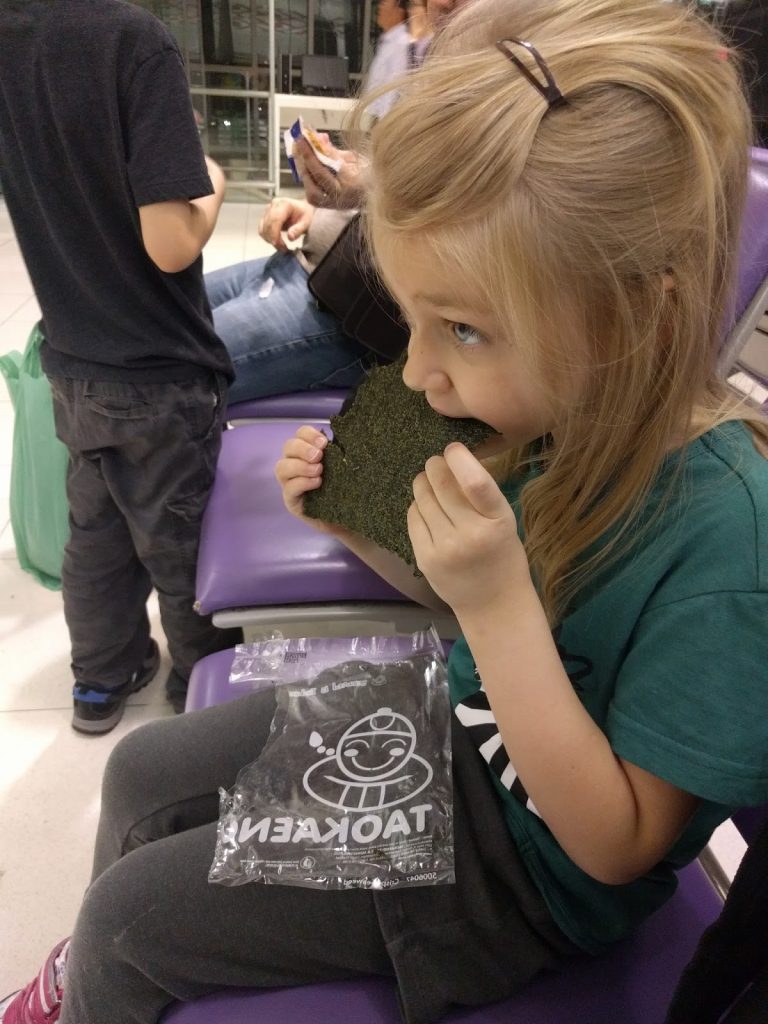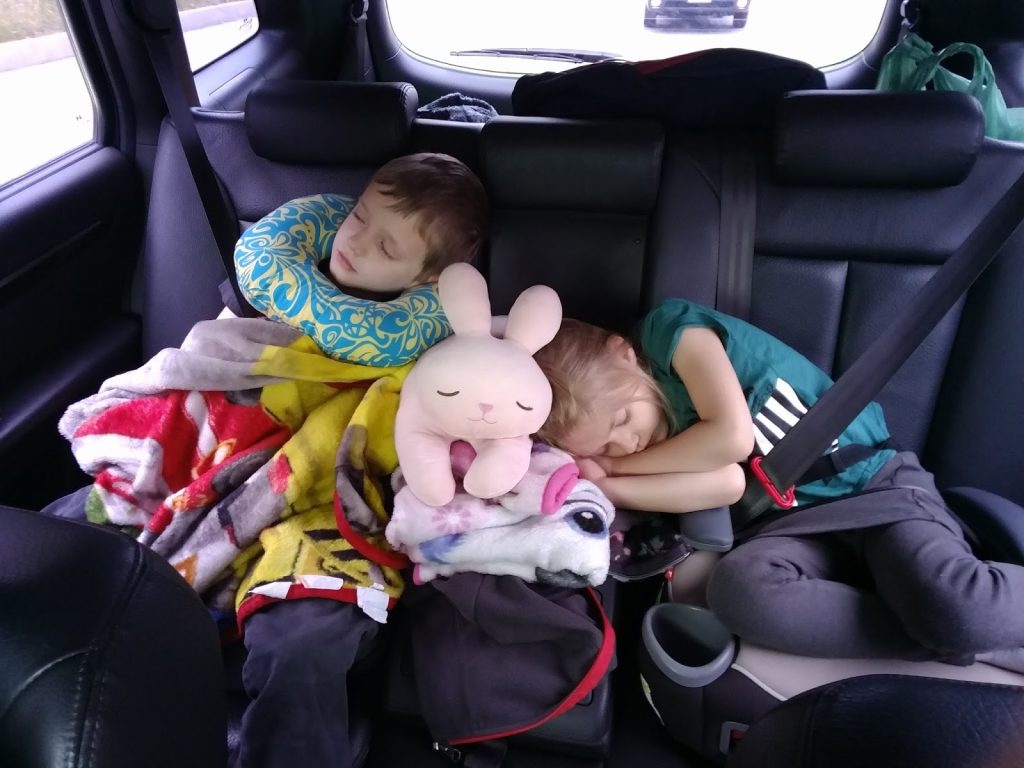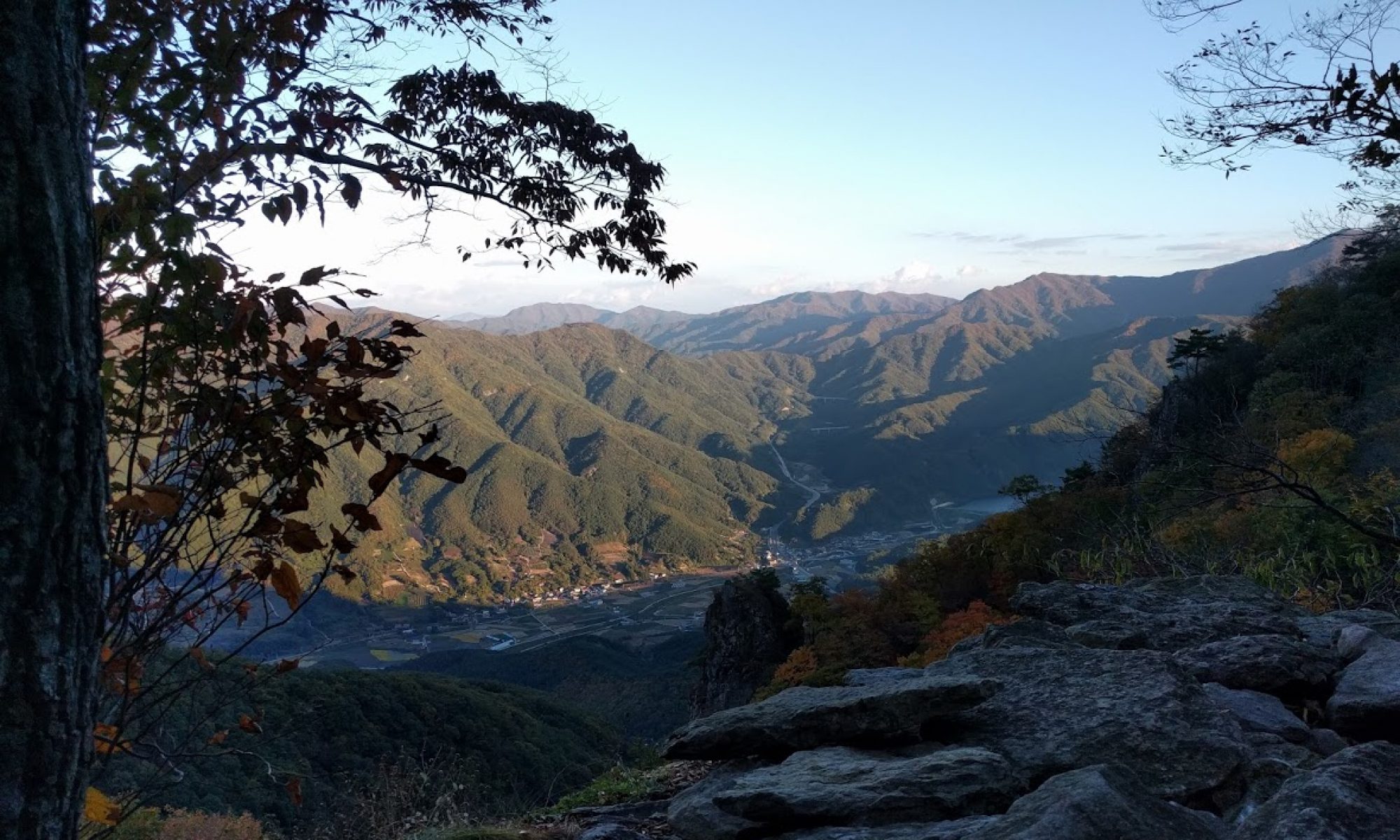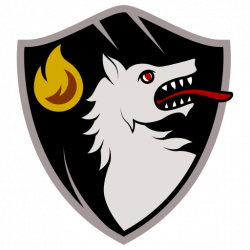For the first time in my life, I planned an international trip approximately one week before departure. Since I’m a plan-ahead, be-prepared kind of gal, it was a little nerve-wracking.
However, there is reason for this: Aaron doesn’t have a lot of whole weeks off, and “international trip” over here is kind of like hopping down to Mexico from Phoenix. Well, maybe not that casual, but definitely not as big a deal as it would be coming from the States. Gotta take advantage of it while we can.
The first week in May has three Korean national holidays: Labor Day (1st), Buddha’s Birthday (3rd), and Children’s Day (5th). There’s some debate about making the 2nd and the 4th public holidays also, to give Koreans a “Golden Week” like they have in Japan. (Golden Week in Japan is this same week, but they celebrate three different Japanese holidays, plus Children’s Day.) Originally, we planned to stay home and sightsee around this area, but then Aaron felt we should take advantage of his time off. He really wanted to visit Guam. However, being Golden Week, everything around this region was booked and/or too expensive: Guam, Saipan, Okinawa, Kumamoto, Jeju Island, etc. Then I stumbled across some deals to Bangkok, so… what the heck? Bangkok it is.
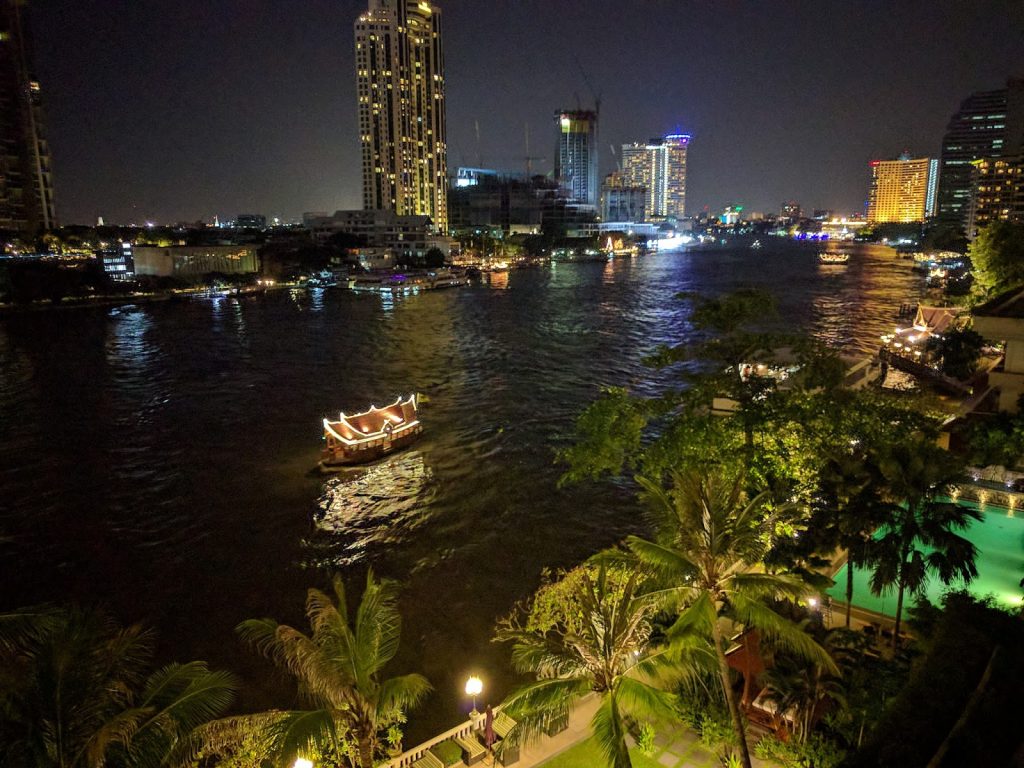
I last visited Bangkok in 2001 as part of a larger backpacking trip, and I remember great shopping and great food. There’s wasn’t much else to do, really, unless you were into temples (not my thing), drinking (just one glass, please), backpacker debauchery (no, thanks), prostitutes (nope), or, as my travel buddy Jen noticed on our street one night, “Prostitutes and elephants!” (don’t ask). Due to circumstances, we were stuck in Bangkok for about a month, and we were so bored we took one whole day just to visit every Starbucks in the city (there were about a half-dozen at the time; now there are 8 pages of listings on the starbuckslocations website). Actually, since we forced ourselves to take different forms of transport, from river ferries to tuk tuks to motorcycle taxis, it was a pretty fun day. Plus, we could “reward” our efforts at each Starbucks.
Well, 16 years later, with a husband by my side and kids in tow, it was an entirely different experience.
Great shopping?
“Mom, it’s sooooo hot. I’m tired.”
“I’m sweating, mommy.”
“Where are the toys? I want to see toys. I’m done here. This is boring.”
Great food?
“Eww! What is that??”
“I’m sweating, mommy.”
“I’m not going to try that.”
Alright, then, let’s try a boat ride.
“How much longer do we have to wait?”
“I’m all sweaty, mommy.”
“Is that our boat? … Is that one there our boat? … How about that one? Is that our boat?”
Okay, let’s do some sightseeing. We’ll visit the palace.
“It’s so hot! I need water or I’m going to dieeeeeeee!”
“I’m SWEATING, mommy!”
“This is sooooo boooooring.”
Fine, we’ll just go to the pool.
“Yay! The pool!”
“Yay! The pool!”
“Wait… You forgot my goggles. I can’t swim without my goggles.”
And that was pretty much it.
We stayed in a nice hotel next to the river that had a lovely atmosphere and a couple of nice pools. Since this was supposed to be a more relaxing trip than the Japan schedule-fest, we only planned something every other day, and spent the off days relaxing in our room or by the pool. (This was also to allow me and Connery to recover from our colds.)
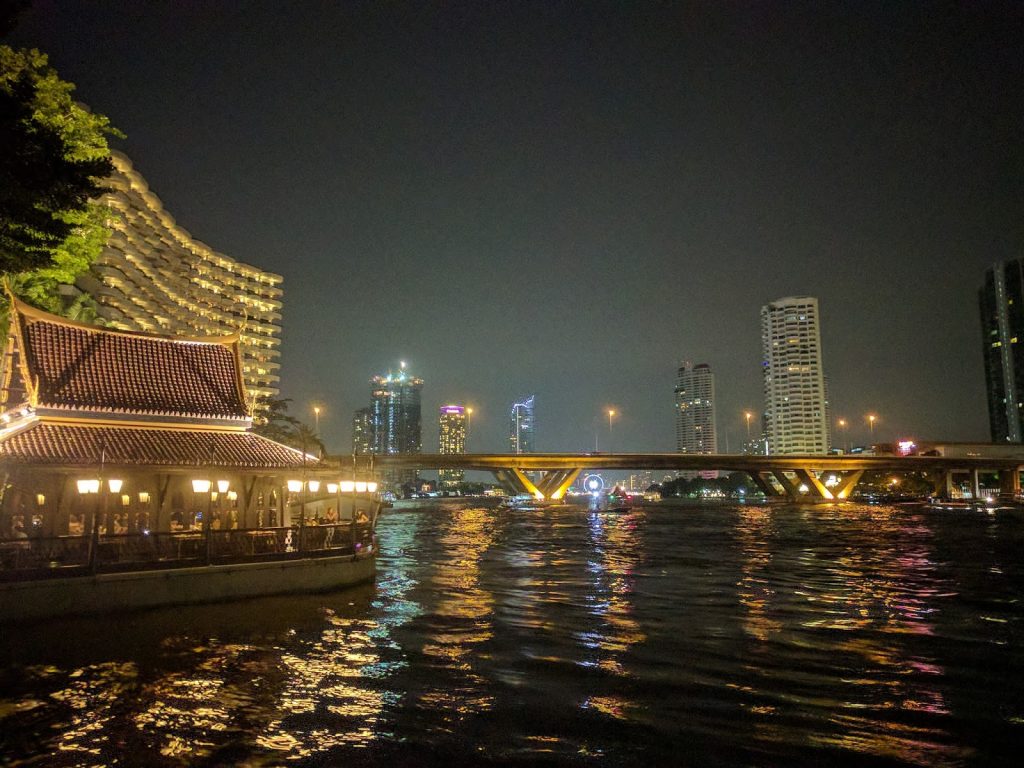
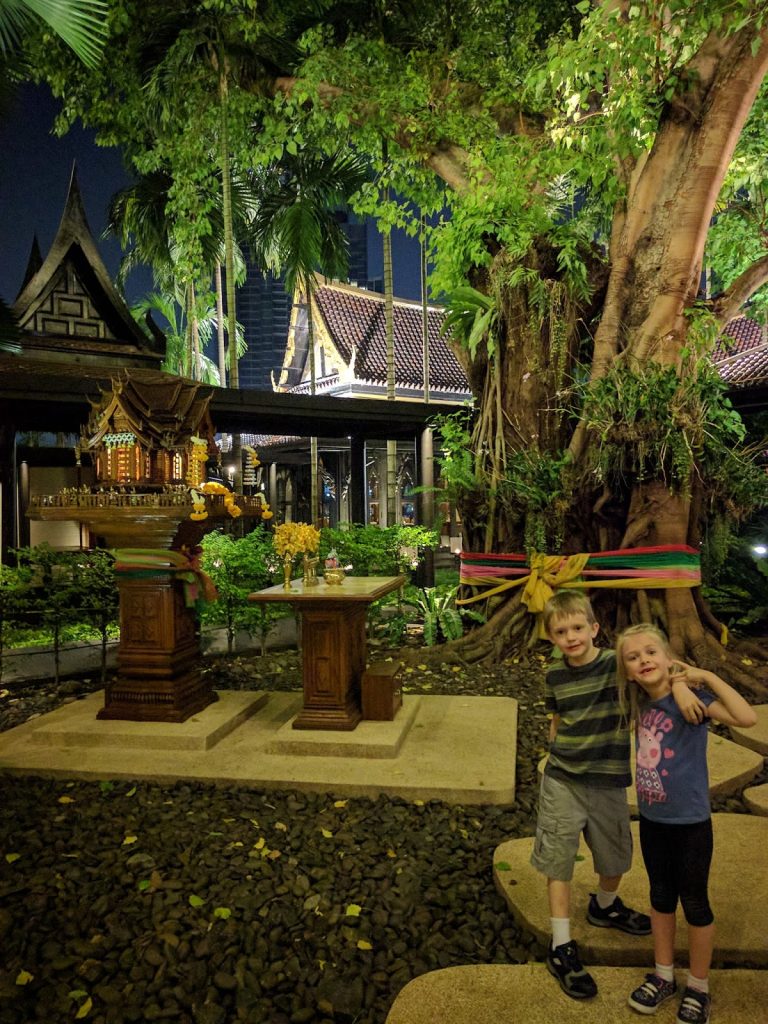
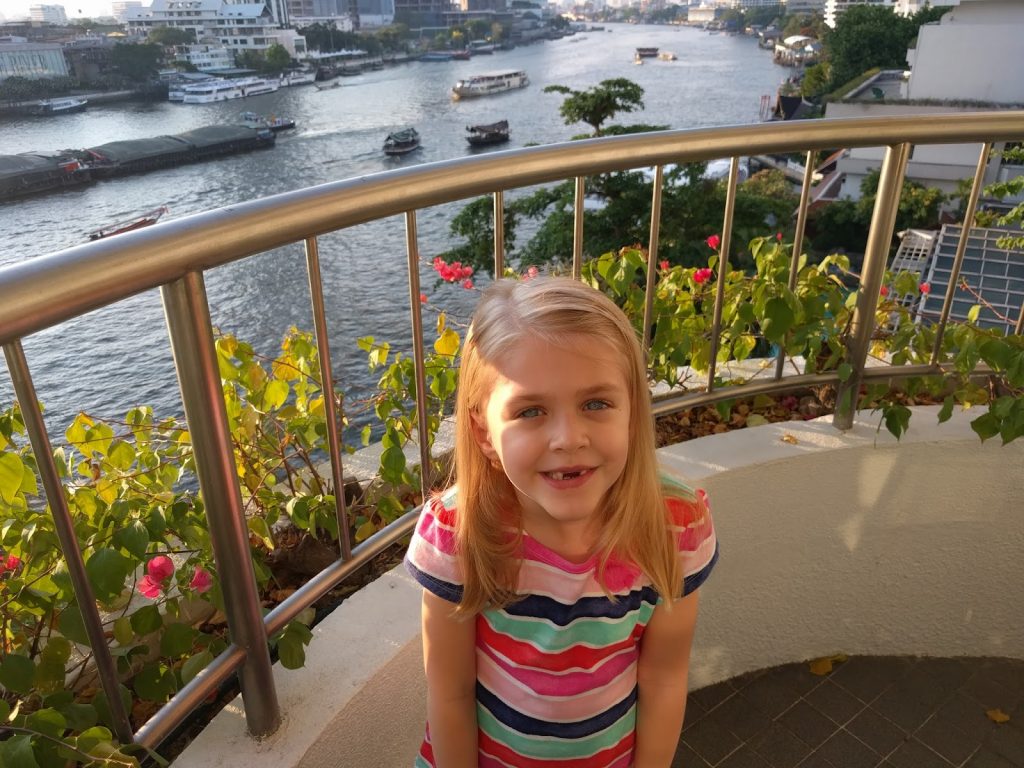
Sunday, we took the kids to Chatuchak weekend market, one of the largest outdoor markets in the world. It is a massive labyrinth of tiny stalls that sell… well, just about anything you can think of. Clothes, home goods, art, electronics, pets, food, etc. Is it an item you can exchange for money? Then you probably can find it at Chatuchak.
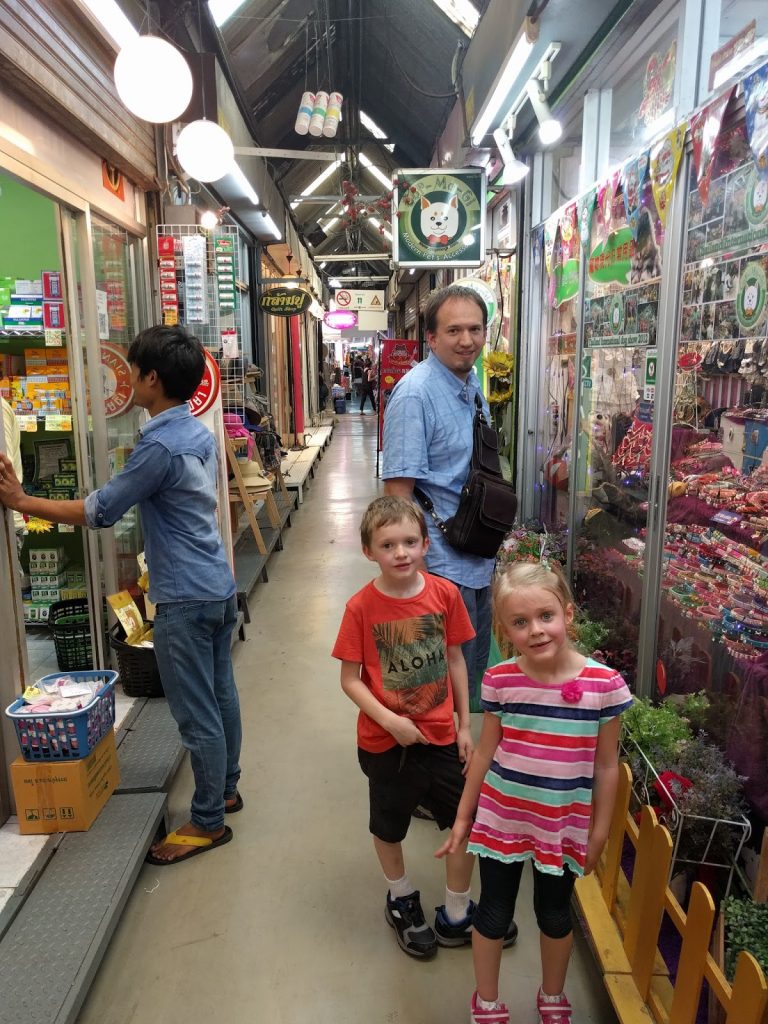
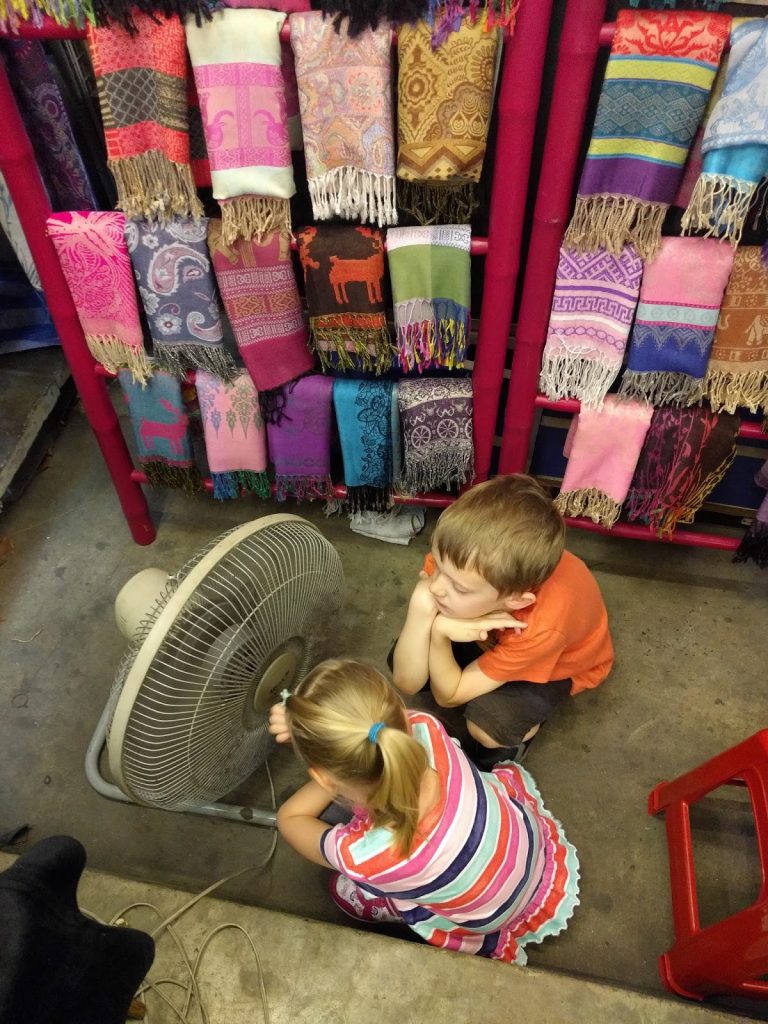
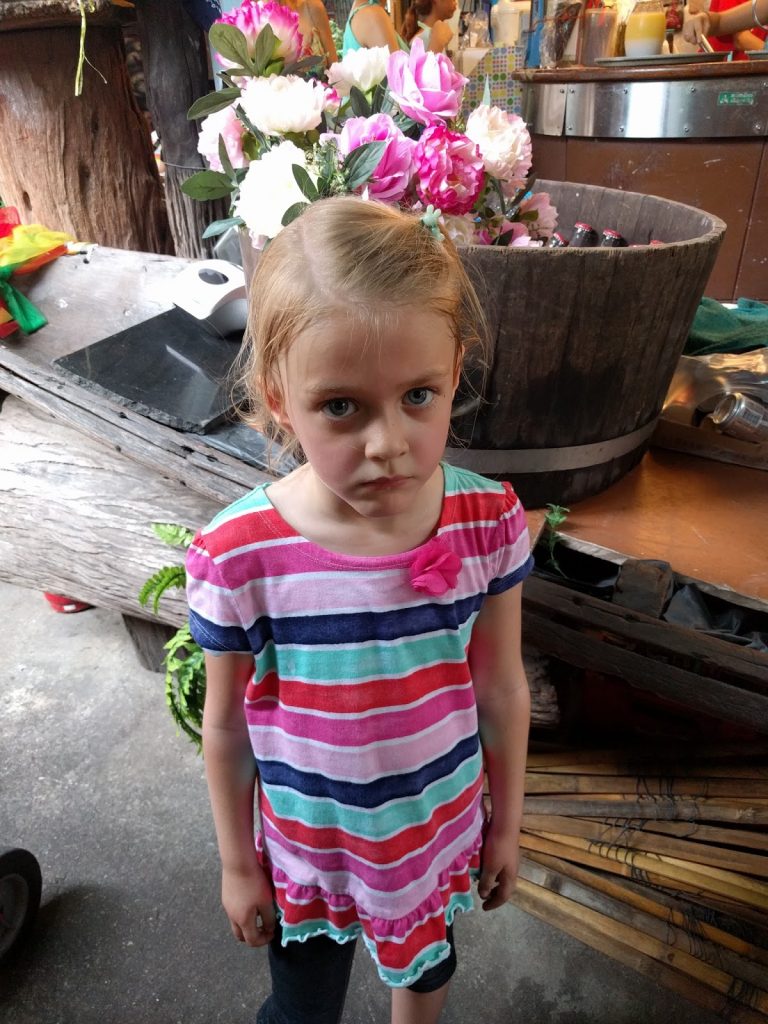
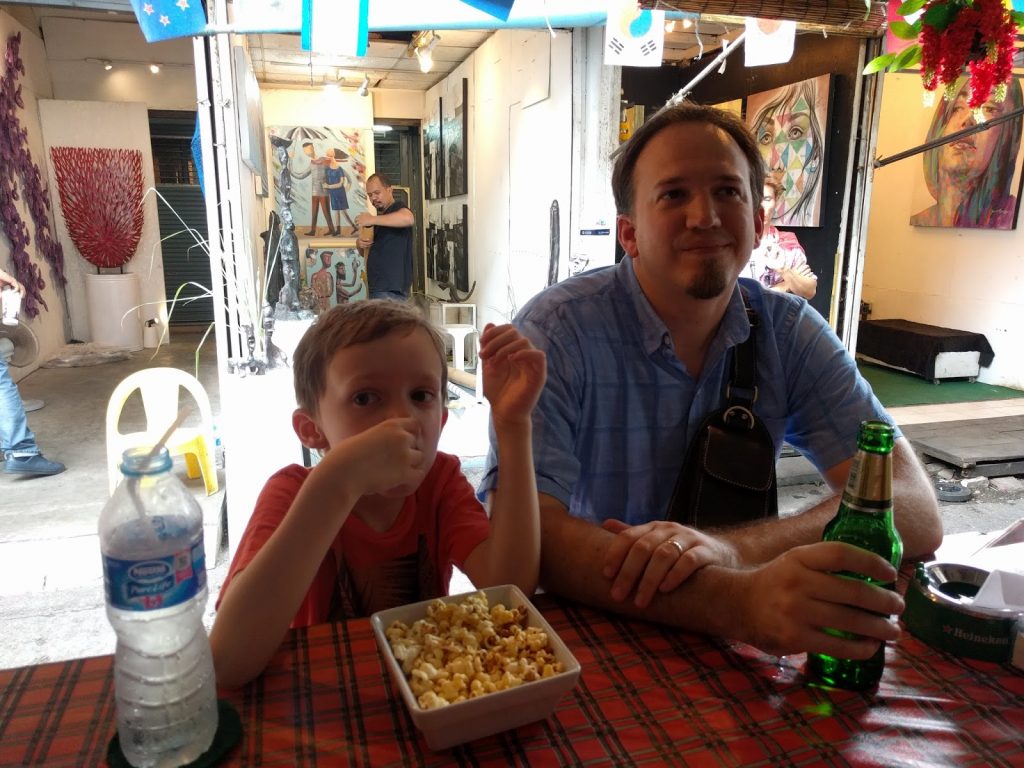
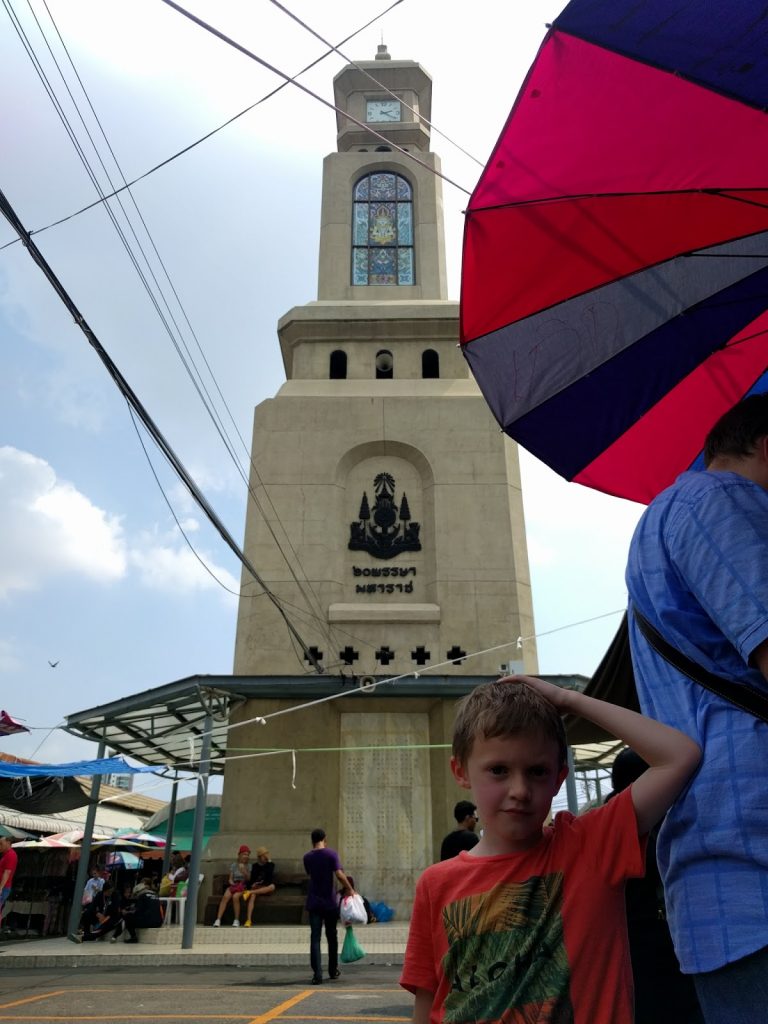
I have fond memories of Chatuchak from my trip with Jen. We would slowly wander the alleys, exploring the different stalls, browsing piles of silks and scarves, handwoven baskets, cups and teapots, or traditional birdcages, looking for that little diamond in the rough. I bought a beautiful intricately handwoven silk scarf on that trip. I carefully carried it home, draped it over a dresser, and accidentally set it on fire. But the memories are with me, and that’s what’s important.
Chatuchak today is a different place. It’s a bit more polished, more organized, more… hipster, I guess. You can see the cultural influence of development, the internet and globalism. Locals sit around in distressed jeans and tank tops, sipping iced coffee, smart phone in hand, listening to a saxophonist playing jazz at the “café” stall nearby. And not one person tried to rob me (I’m looking at you, dude who thought I couldn’t feel my backpack unzipping 16 years ago).
According to the World Bank, Thailand is one of the great development success stories, and it became an upper-middle income country in 2011. The poverty rate has dropped from 67% to around 10% in the last 30 years. Kids are getting more education. Nearly everybody has health coverage. Young people on the Skytrain wear the same nerdy nyan cat t-shirts and name brand sneakers you see on teenagers in America or Korea.
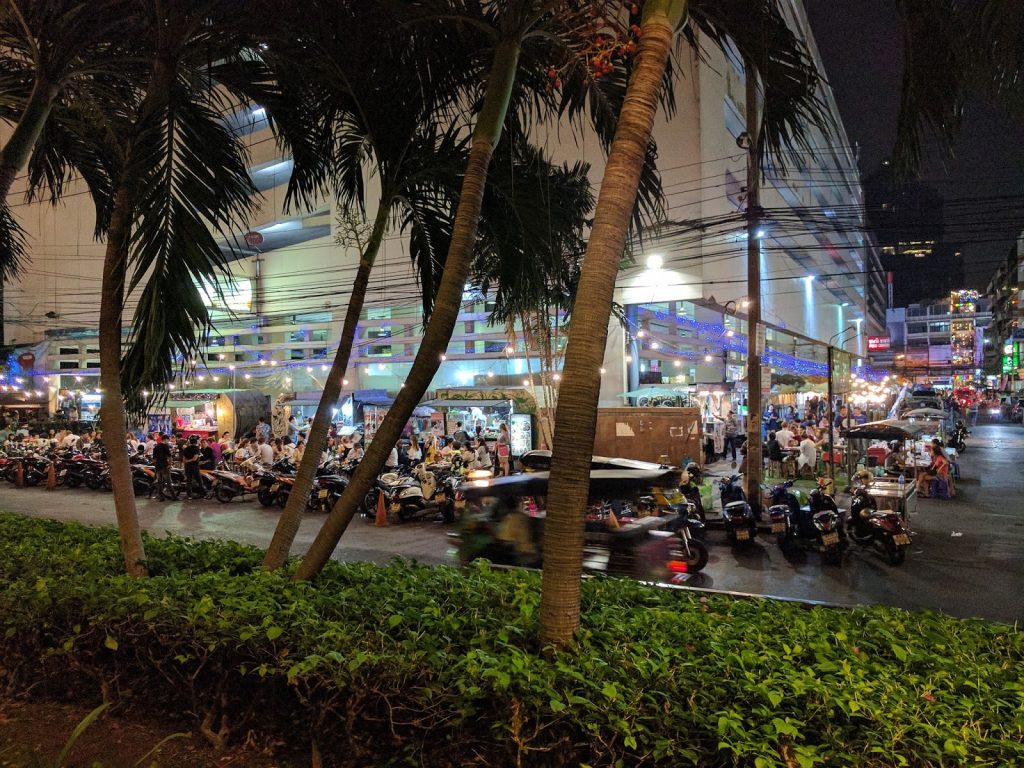
This seems to be true of Asia as a whole today. It’s undergone a lot of growth and development in the last 20 years. And it’s still growing. Every place we’ve been is covered in construction sites. Plus, the middle class boom in China has sent Chinese tourists all around east and southeast Asia, and unlike European and Australian backpackers, middle class Chinese tourists expect quality. They are not happy to slum in a hovel for $10 a night, no matter how cheap the booze is. And as countries modernize and develop, young adults have more access to the internet, to global awareness and culture. International companies and brands move in. Tech companies move in, bringing jobs and allowing people to join the global conversation. My anthropologist/historian side kind of hates this, because ultimately development means less diversity. But who am I to deny somebody the joys of a smooth iced coffee or the life-changing technology of a smart phone? Who am I to say they should move their goods in tuk tuks rather than air conditioned trucks? Really… it’s an interesting time to be in Asia. Though they seriously need to get some environmental watchdogs with teeth (I’m looking at you, China).
That said, Thailand still has problems. Much of its rural areas are dominated by subsistence agriculture, and millions of people are still vulnerable. Thailand used to be a monarchy. It was never colonized by any Western nations, but after a 1932 revolution, it became a constitutional monarchy. Over the years, the Thai government has had some democratic moments, and a lot more military-quasi-dictatorship-repeals-constitution-after-a-coup moments (they have had SEVERAL constitutions, and the latest was ratified this April). Does anybody remember the political protests and coup that occurred a few years back? It’s all pretty complicated, but let me see if I can sum it up quickly…
Thailand was hit hard by the ’97 Asian financial crisis, and this led to the election of Prime Minister Thaksin Shinawatra. At first, the economy grew and he was popular. Then the 2004 tsunami hurt the economy, and he was less popular. The “Yellow Shirts” started protesting against him. There was a contested election. Then a coup in 2006 while Shinawatra was visiting the U.N. The military leaders allowed an election and a pro-Shinawatra party won in 2007. Then the 2008 U.S. financial crisis happened and the Thai economy fell again. The Yellow Shirts got angry and occupied Government House. A court ousted the Prime Minister and Shinawatra’s brother-in-law became the new Prime Minister. The economy tanked. The Yellow Shirts got really angry and seized Bangkok’s airports. A court ousted the bro-in-law. Opposition party took over and new a protest group, the “Red Shirts,” arrived. In the 2011 election, Shinawatra’s sister became Prime Minister. The Thai flooding of 2011 then 2012 Eurozone crisis pushed the Thai economy to the brink of recession. More protests. A court removed the sister. Then, in 2014, another military coup.
National Council for Peace and Order is a pretty name for a military dictatorship that has squelched and imprisoned politicians, professors, critics, protestors, and the press. Rather than hold an election and return the government quickly, as most of Thailand’s previous military leaders have done, the NCPO is hanging on. Some thought they wanted to remain in power until succession for the country’s ailing king was clarified, but King Bhumibol Adulyadej died last October after serving for over 70 years – making him the world’s longest-reigning monarch – and he was succeeded by his only son, King Maha Vajiralongkorn Bodindradebayavarangkun.
There were many Thai mourners paying their respects at the palace in Bangkok the day we visited. Long lines of people dressed all in black, standing along the road, crammed into tuk tuks and trucks, posing for photos in front of the temple. It was a very warm day, and we were all rather hot in our required modest pants and shoulder-and-cleavage covering shirts, so I could only think how hot they must have been standing around in full length black dresses and suits. But the king was apparently very popular. The new king? Not as much. It will be interesting to see what happens.
To be honest, as a tourist I would never have known about all of their political turmoil had I not remembered the coup and looked up some articles on the subject. The Thai people are as hard working and friendly as I remembered. Many of them are unhappy with the situation, but their protestations (apparently including eating sandwiches and posting images of the Hunger Games’ three-fingered salute) were harshly reprimanded. I hope they can find their way back to freedom, development, and progress soon.
And I hope we can return to enjoy and learn more about Thailand when the kids are a little bit older, a little bit more adventuresome, and a whole lot less whiney.
